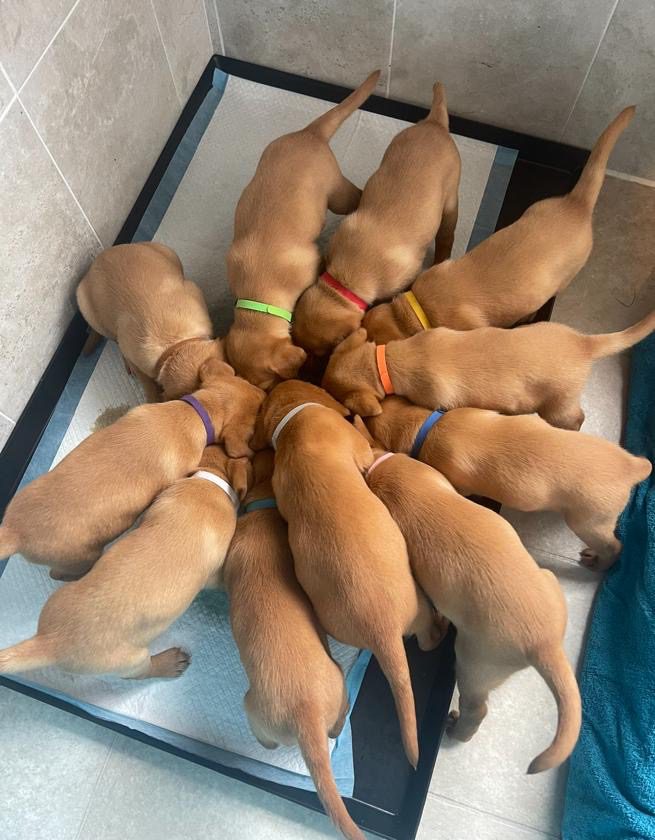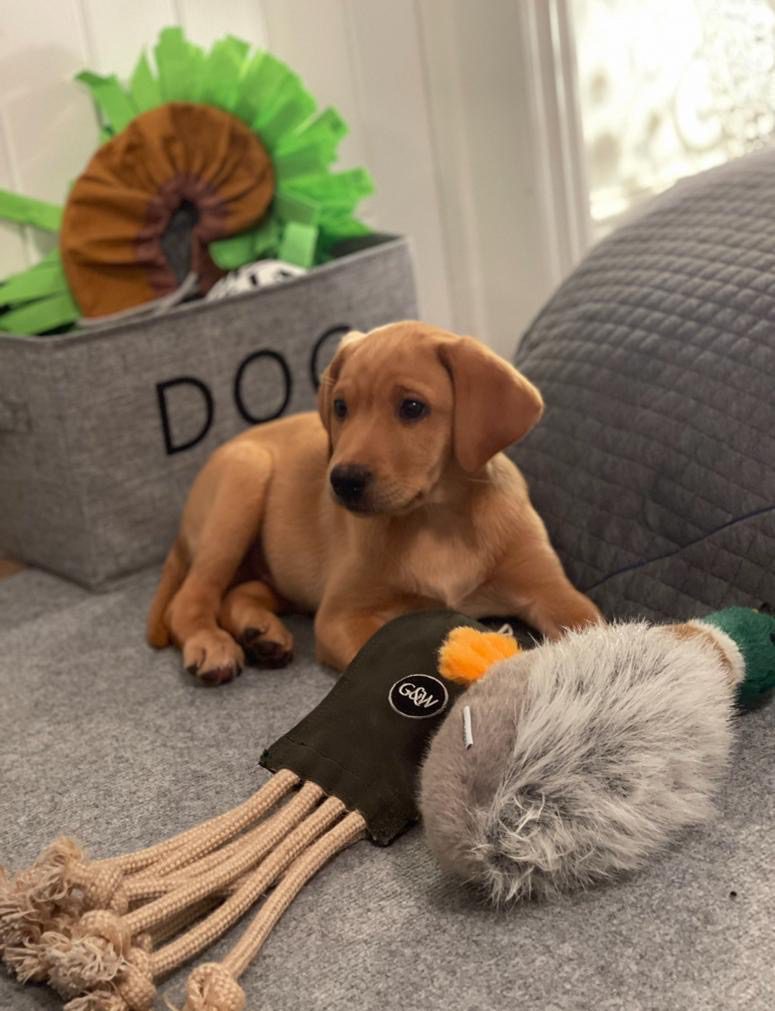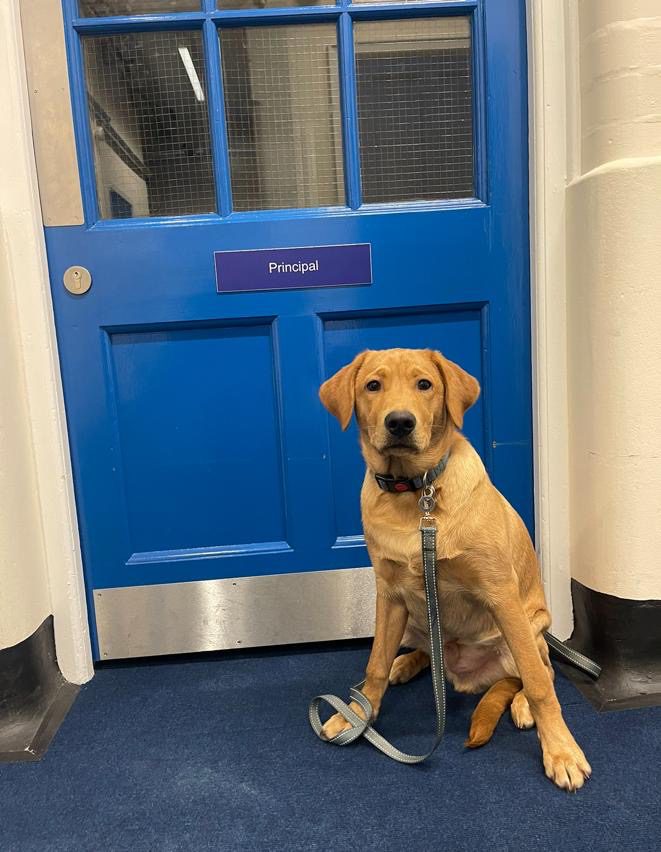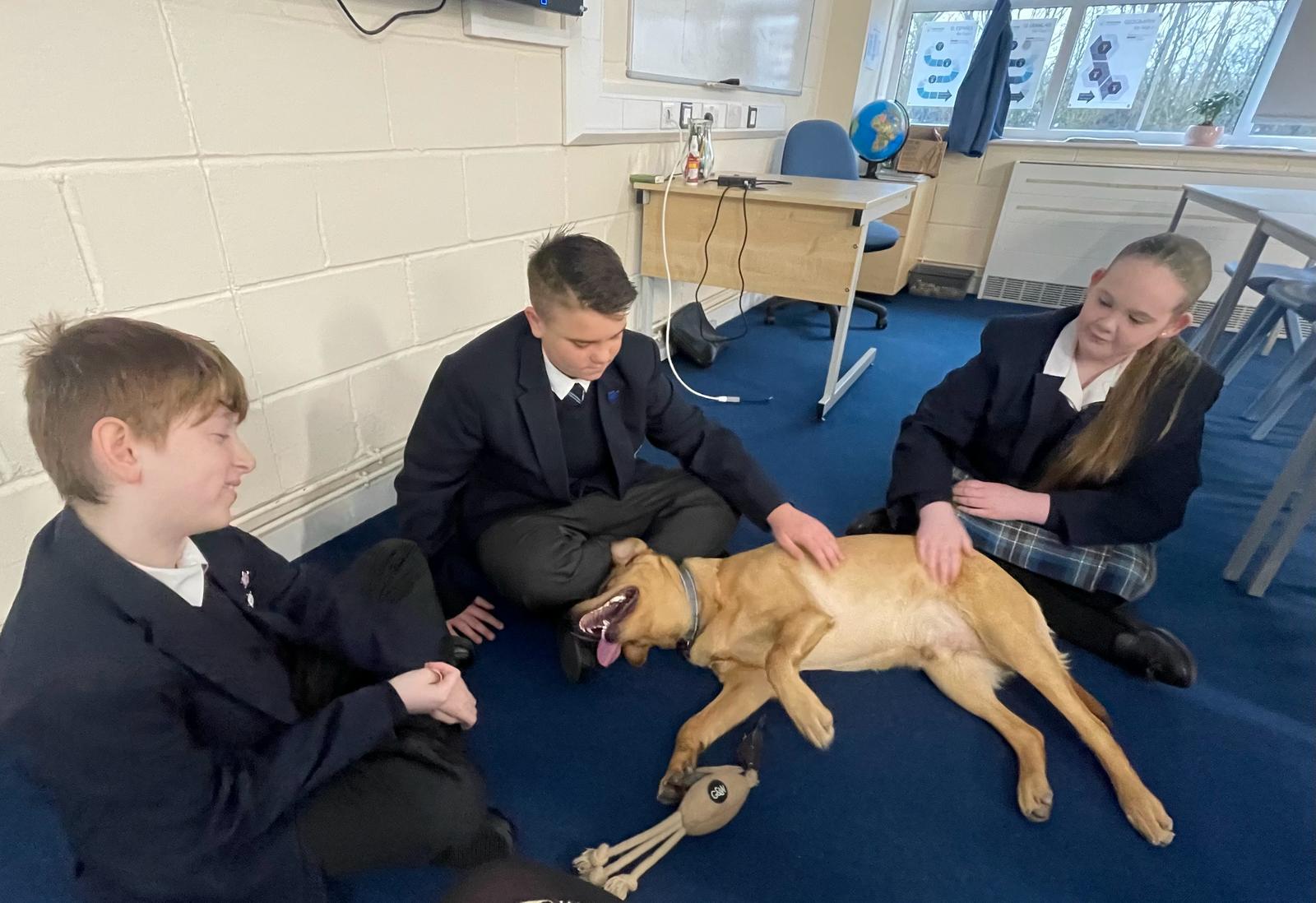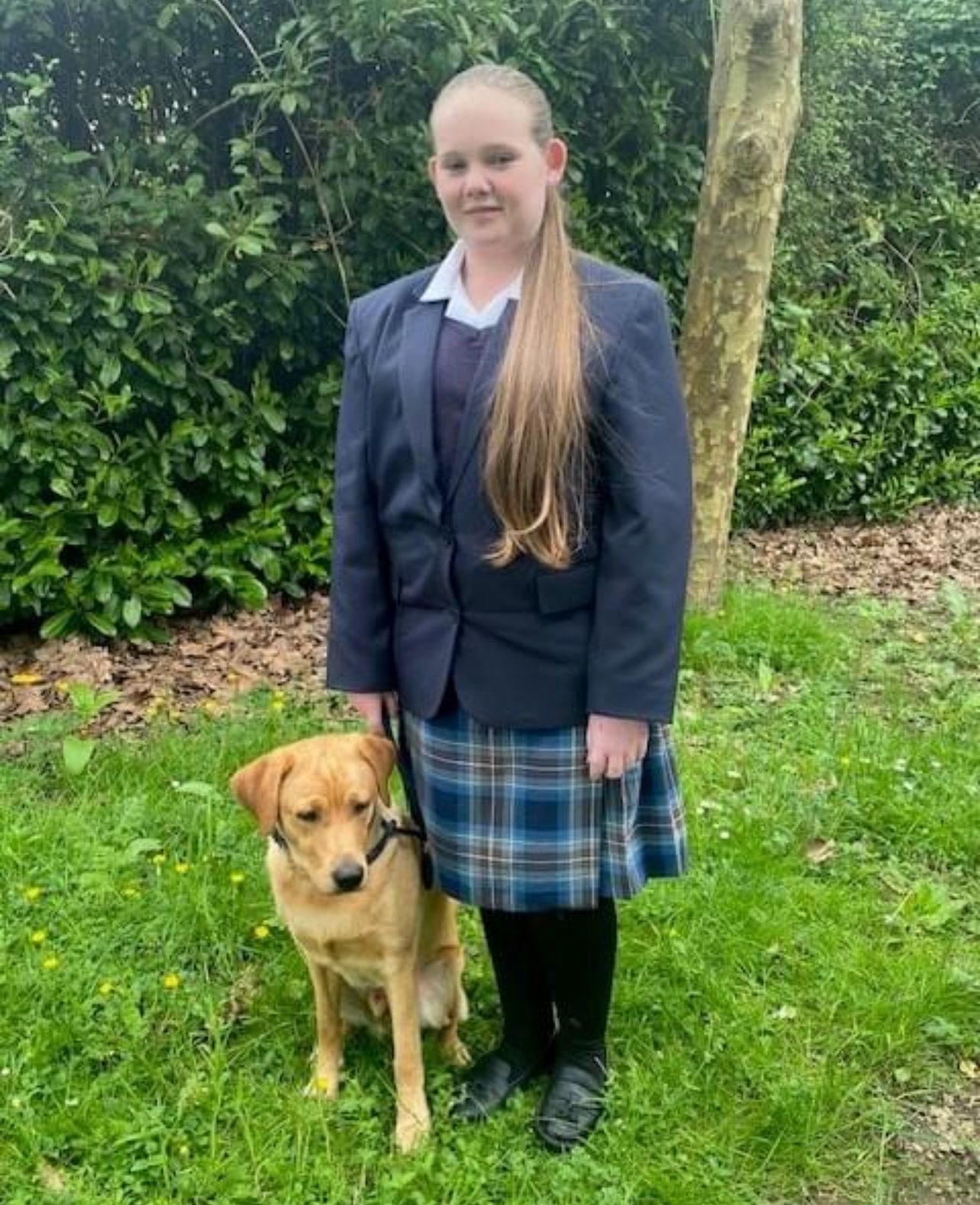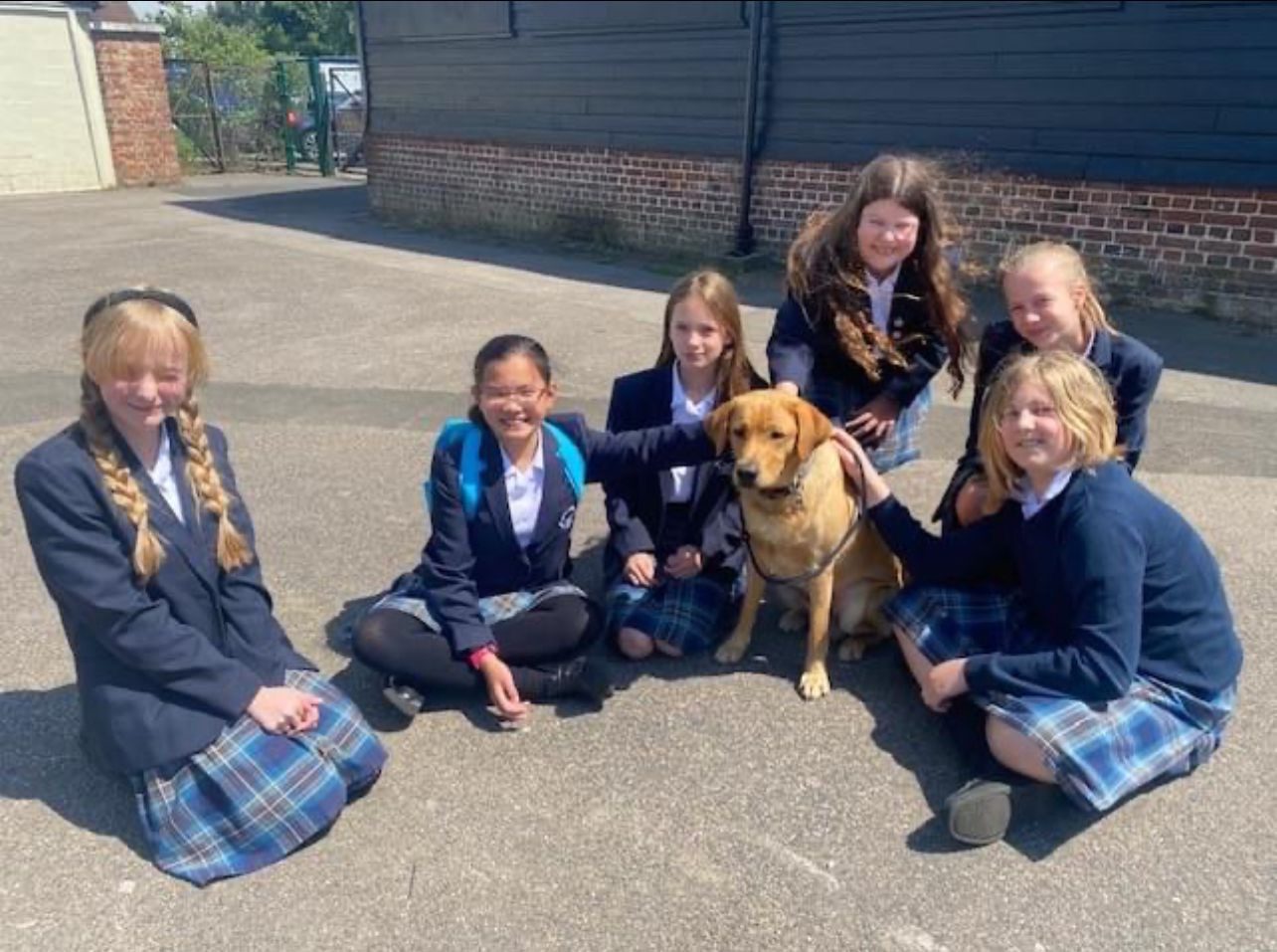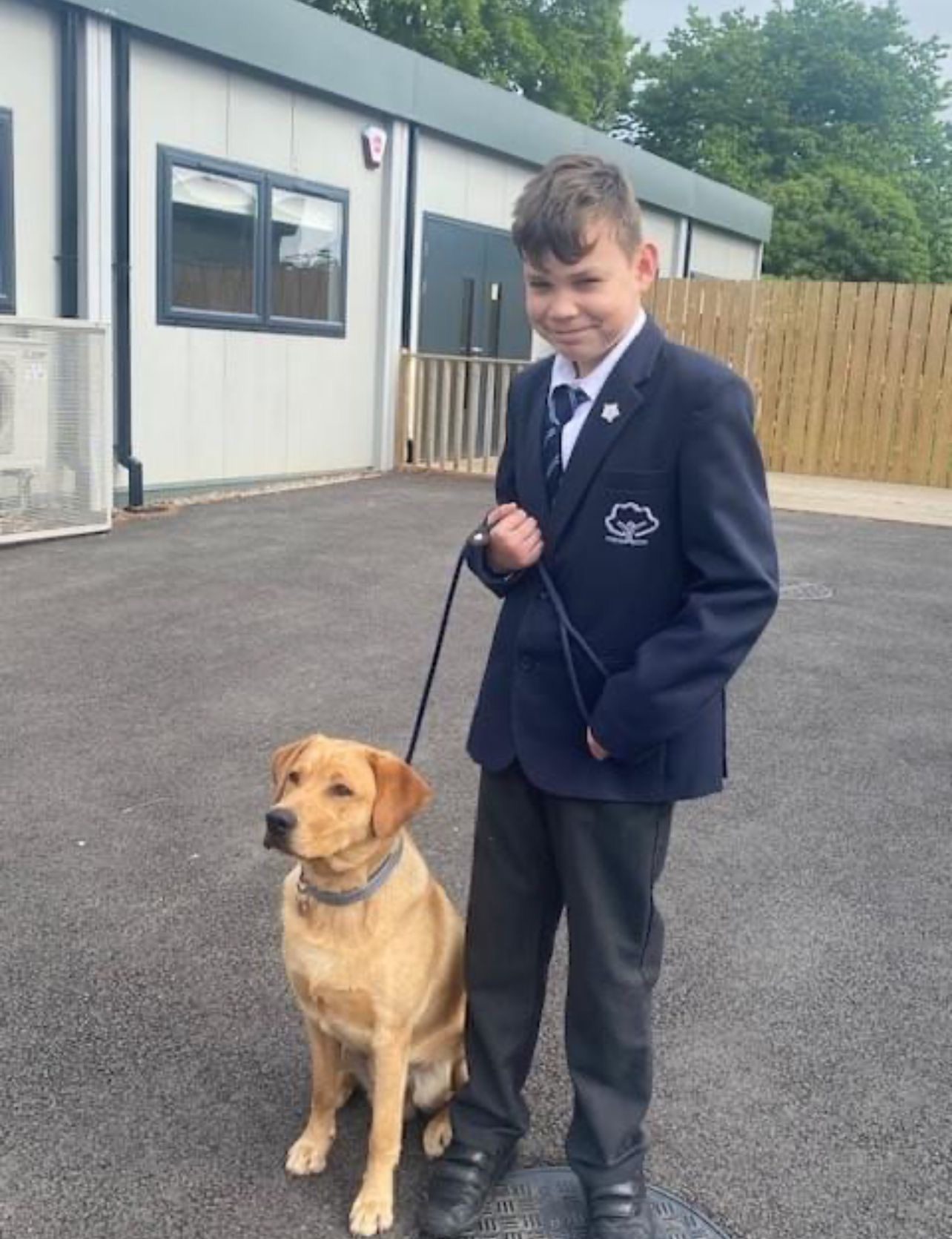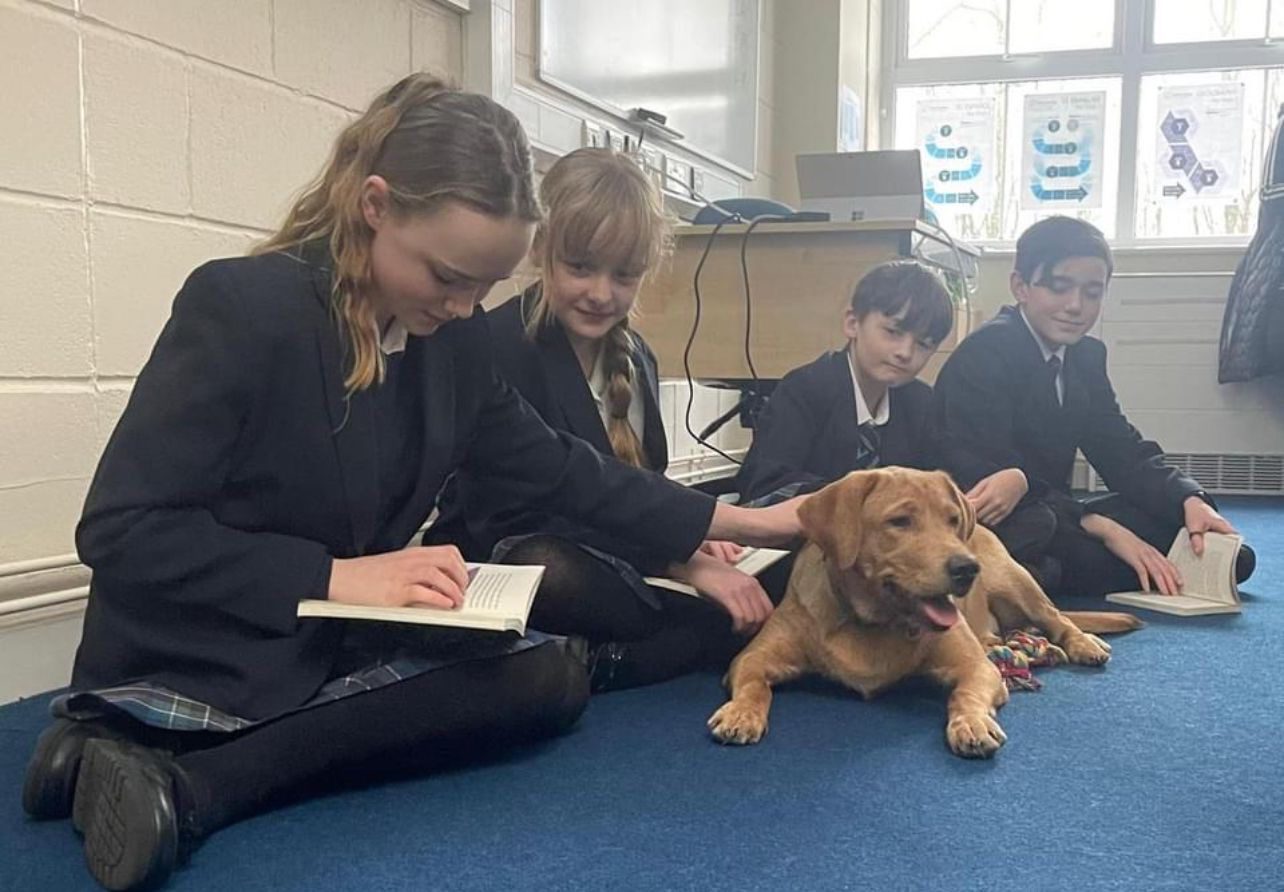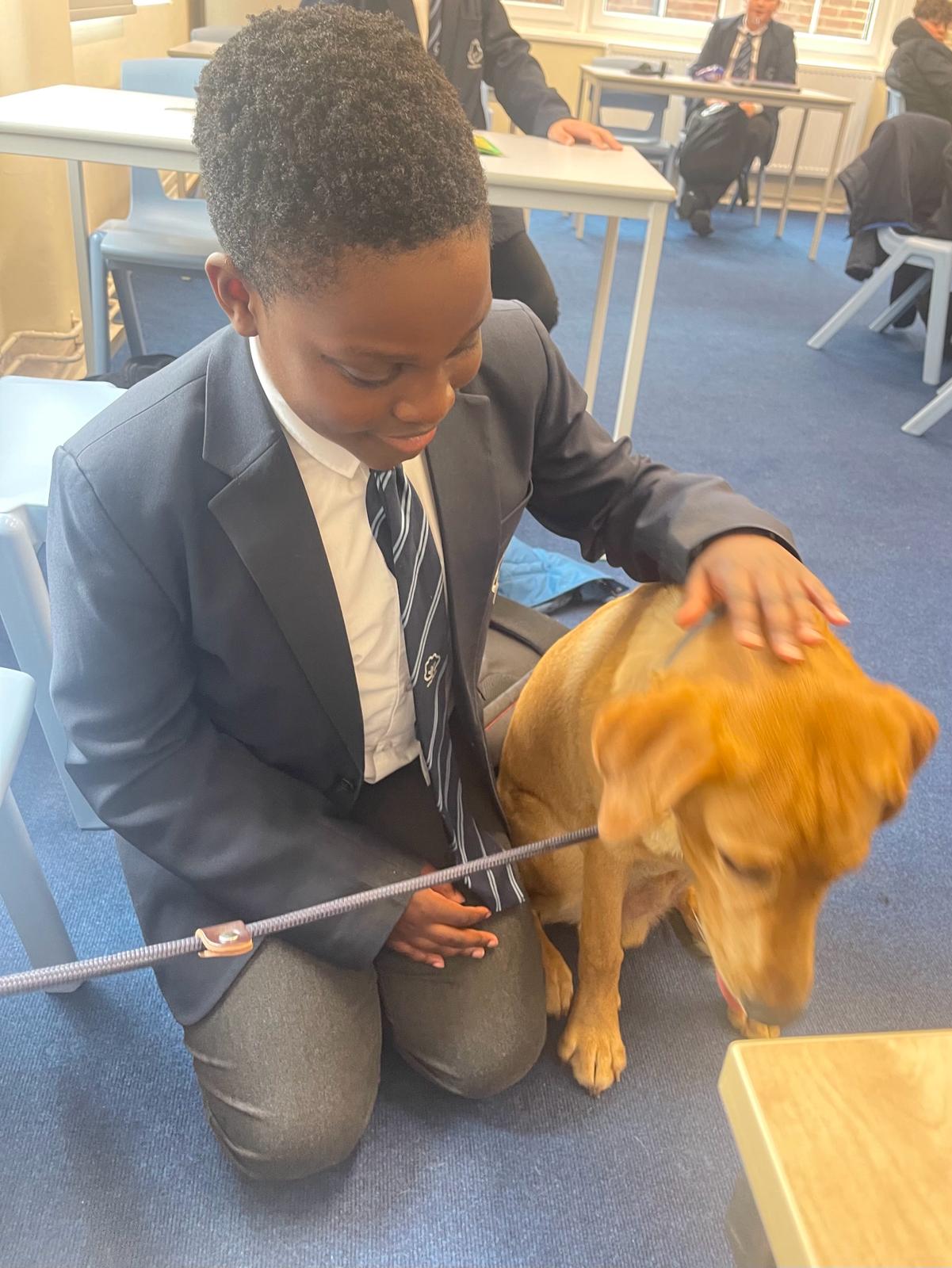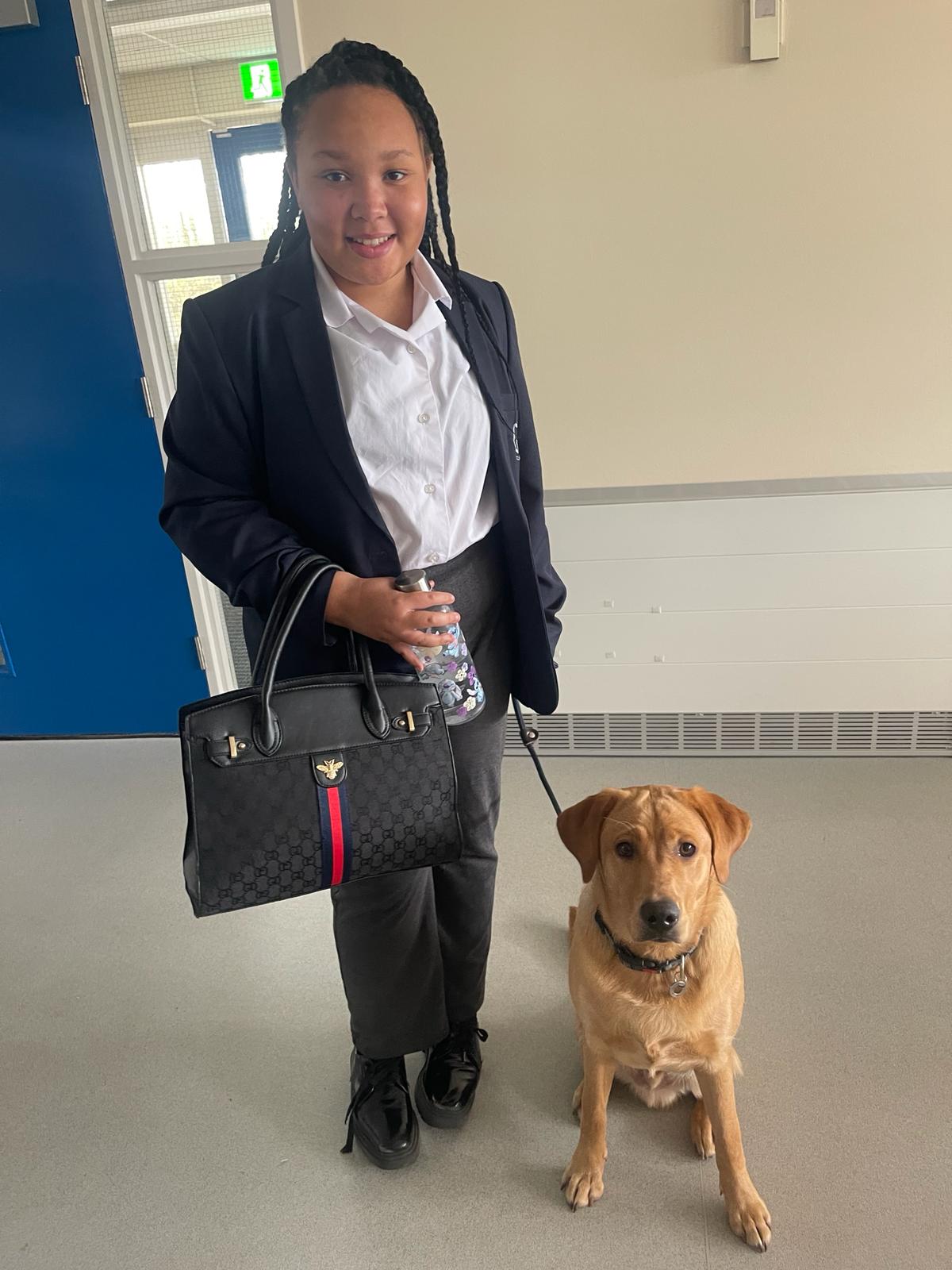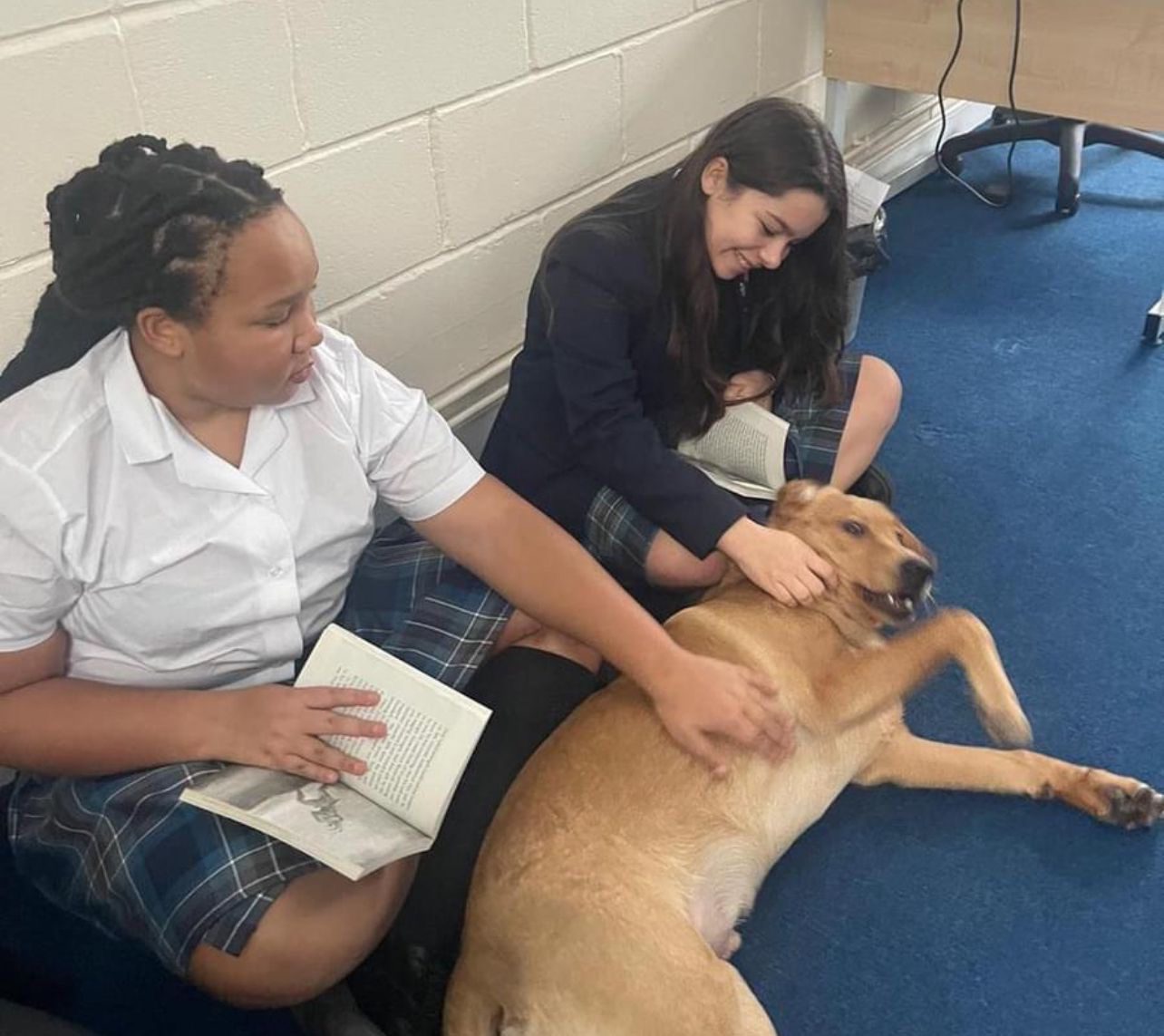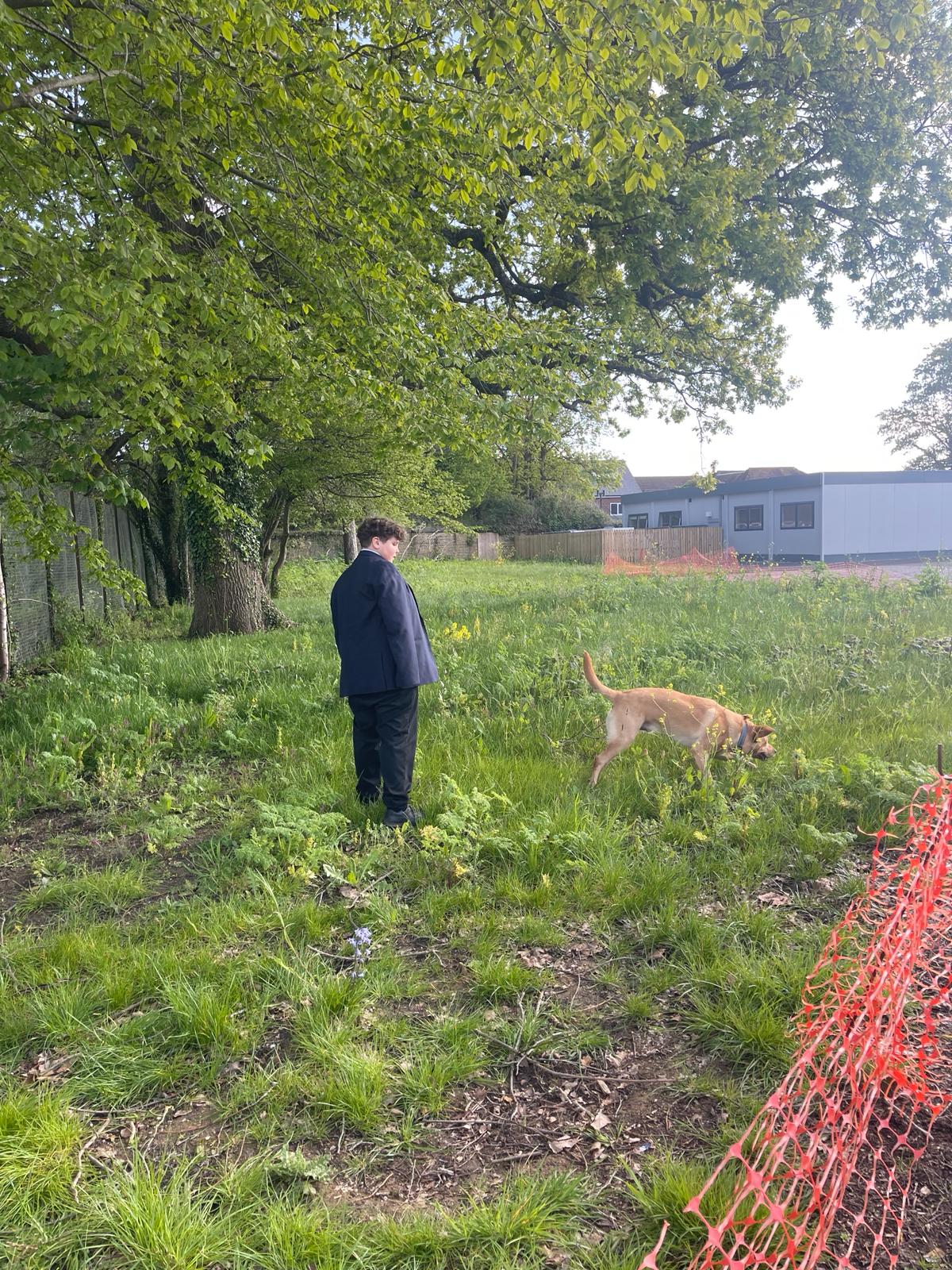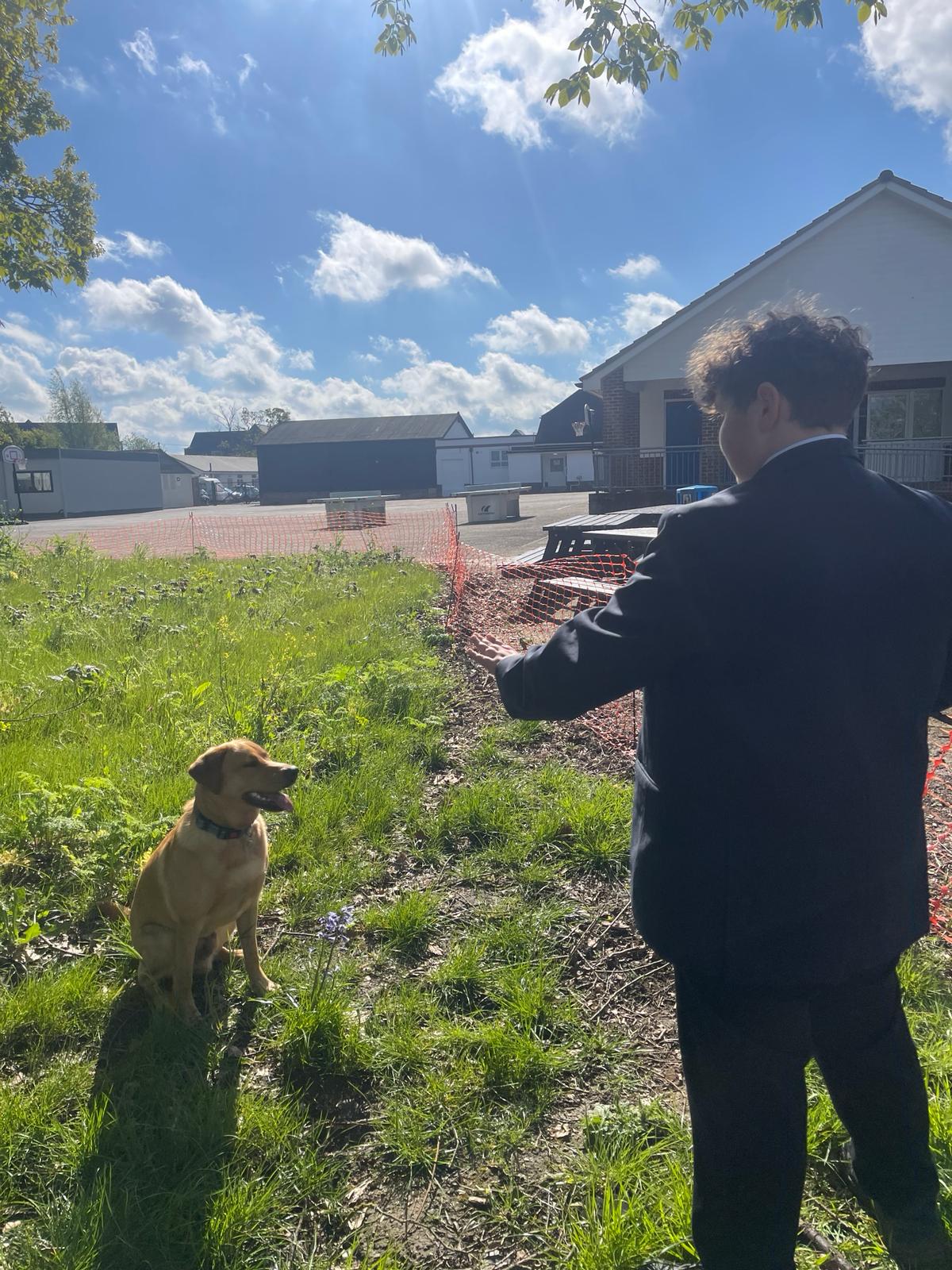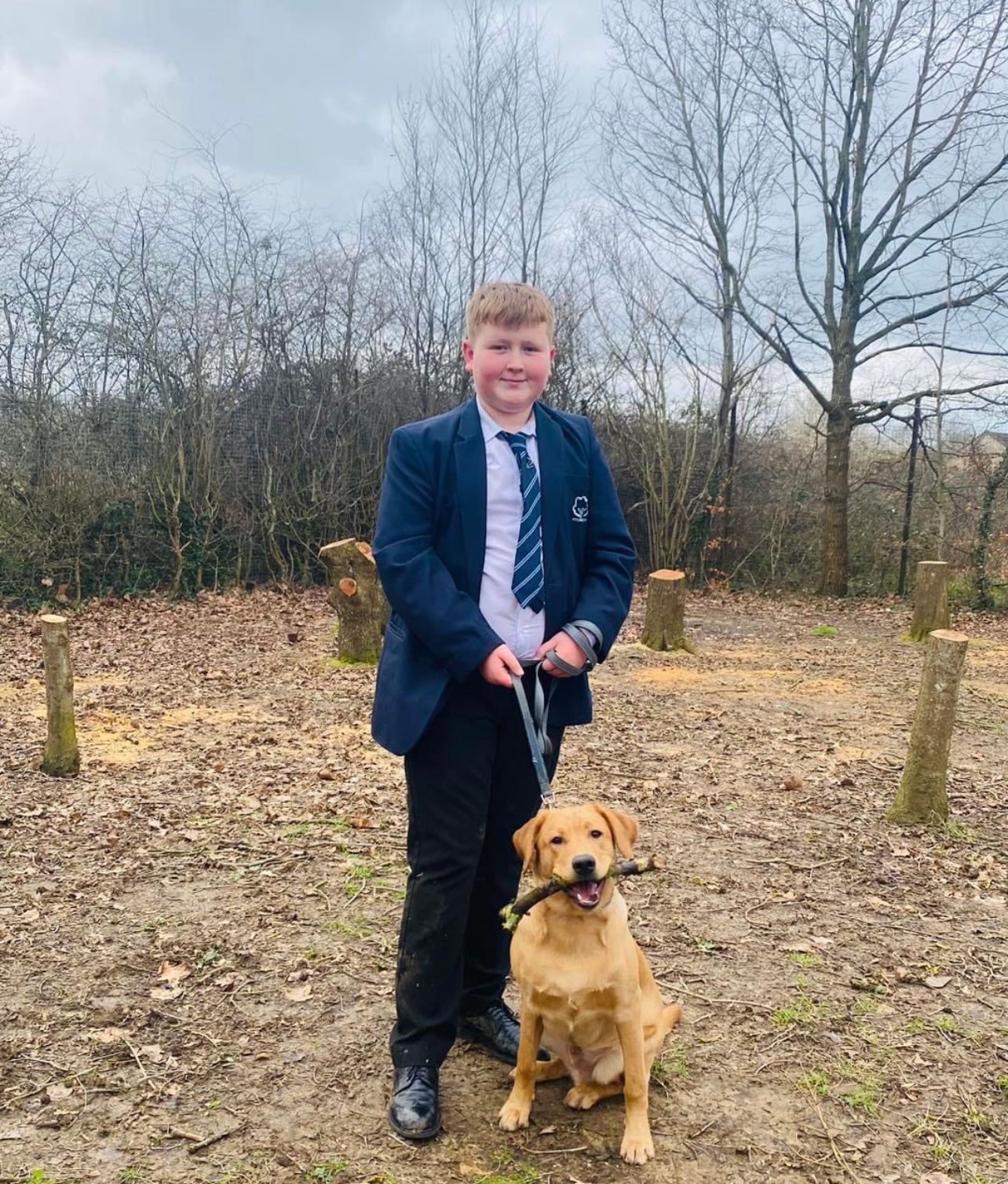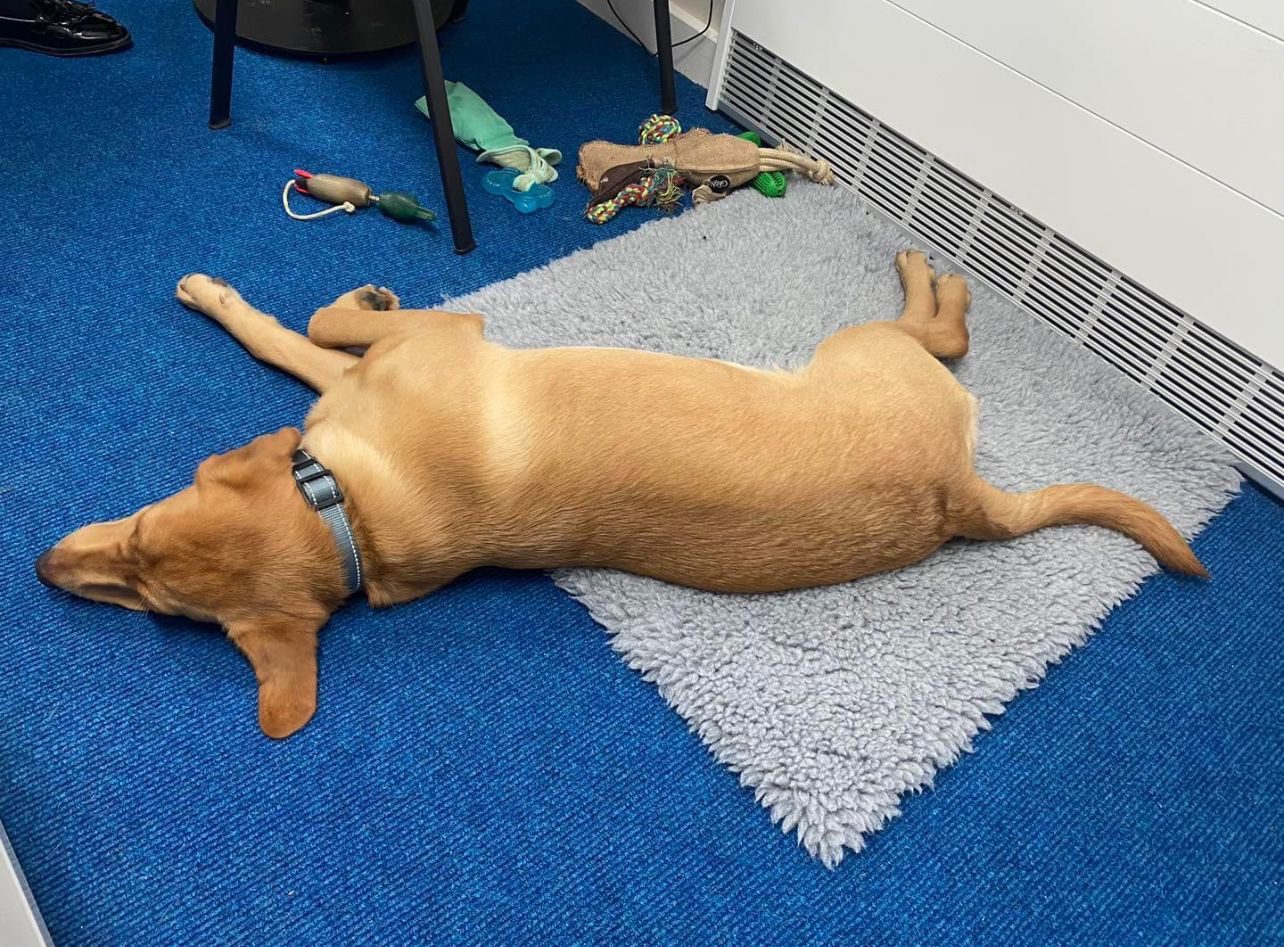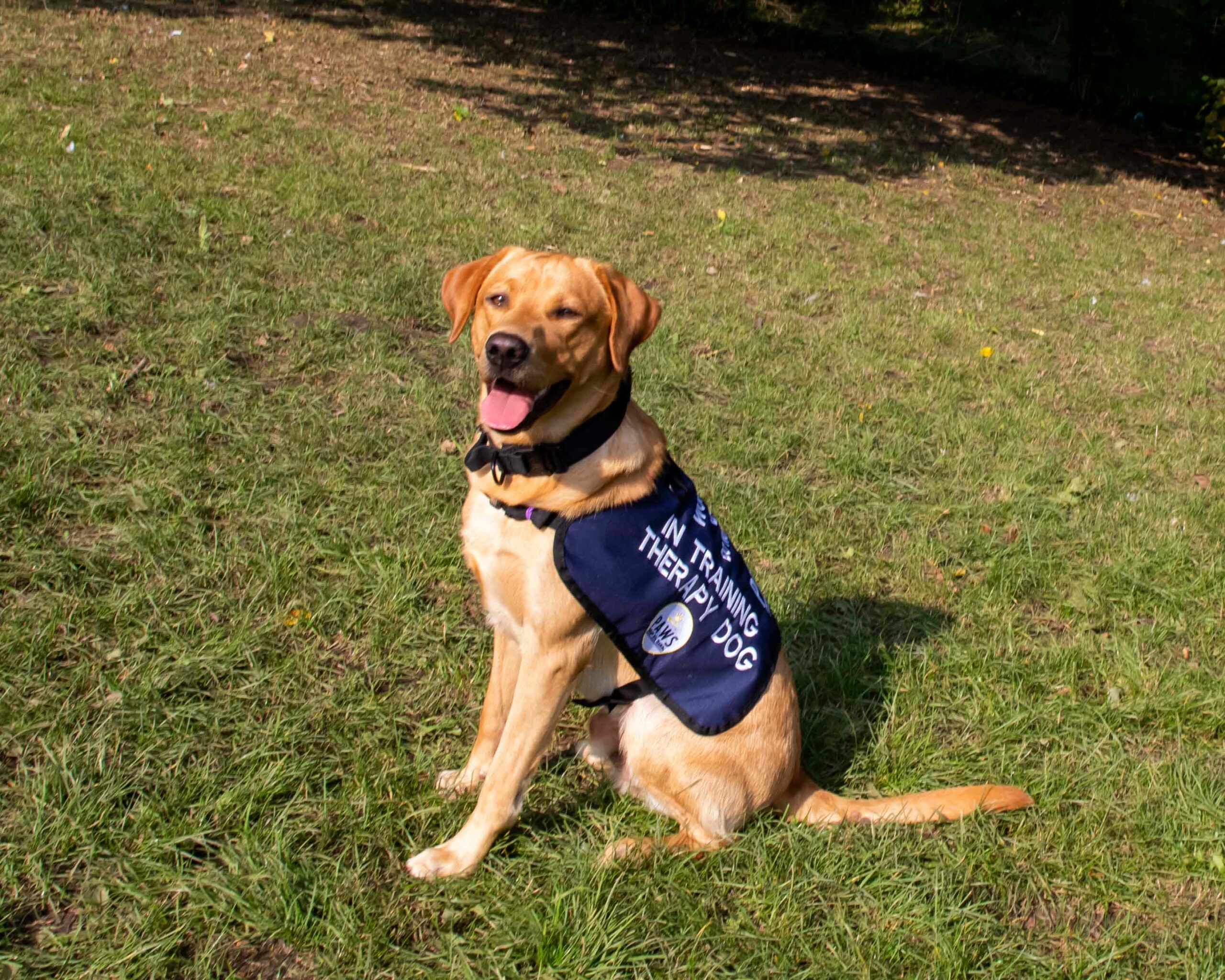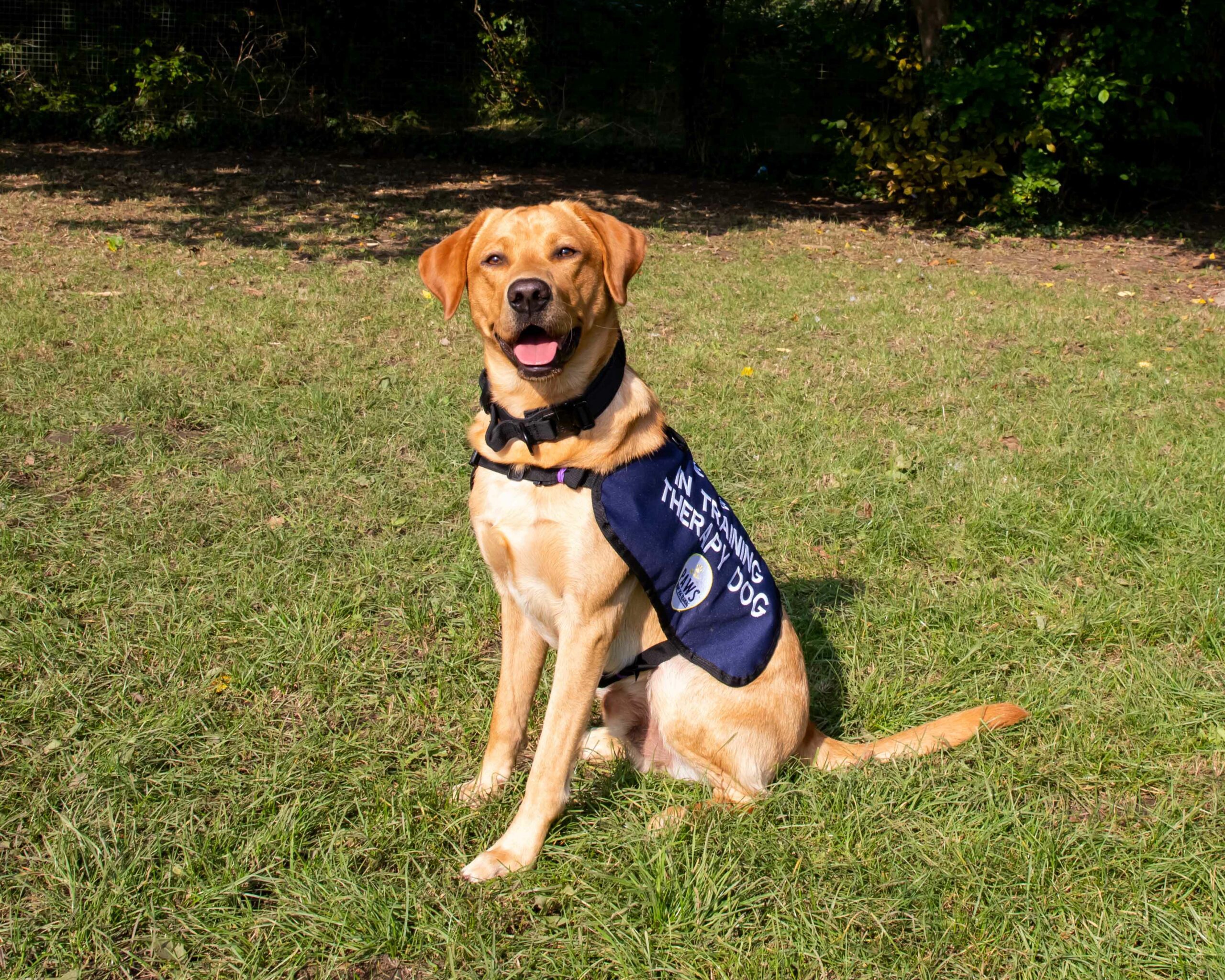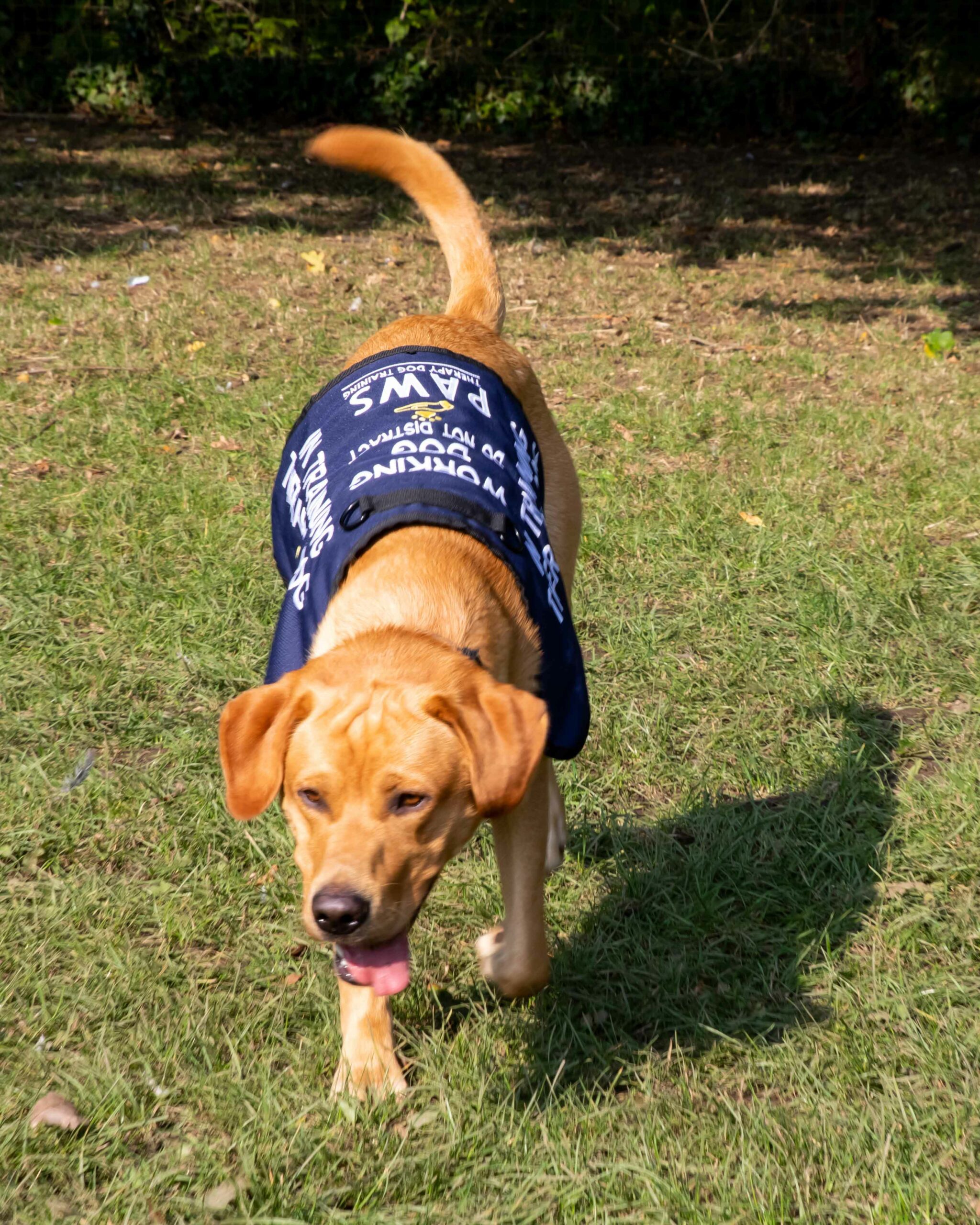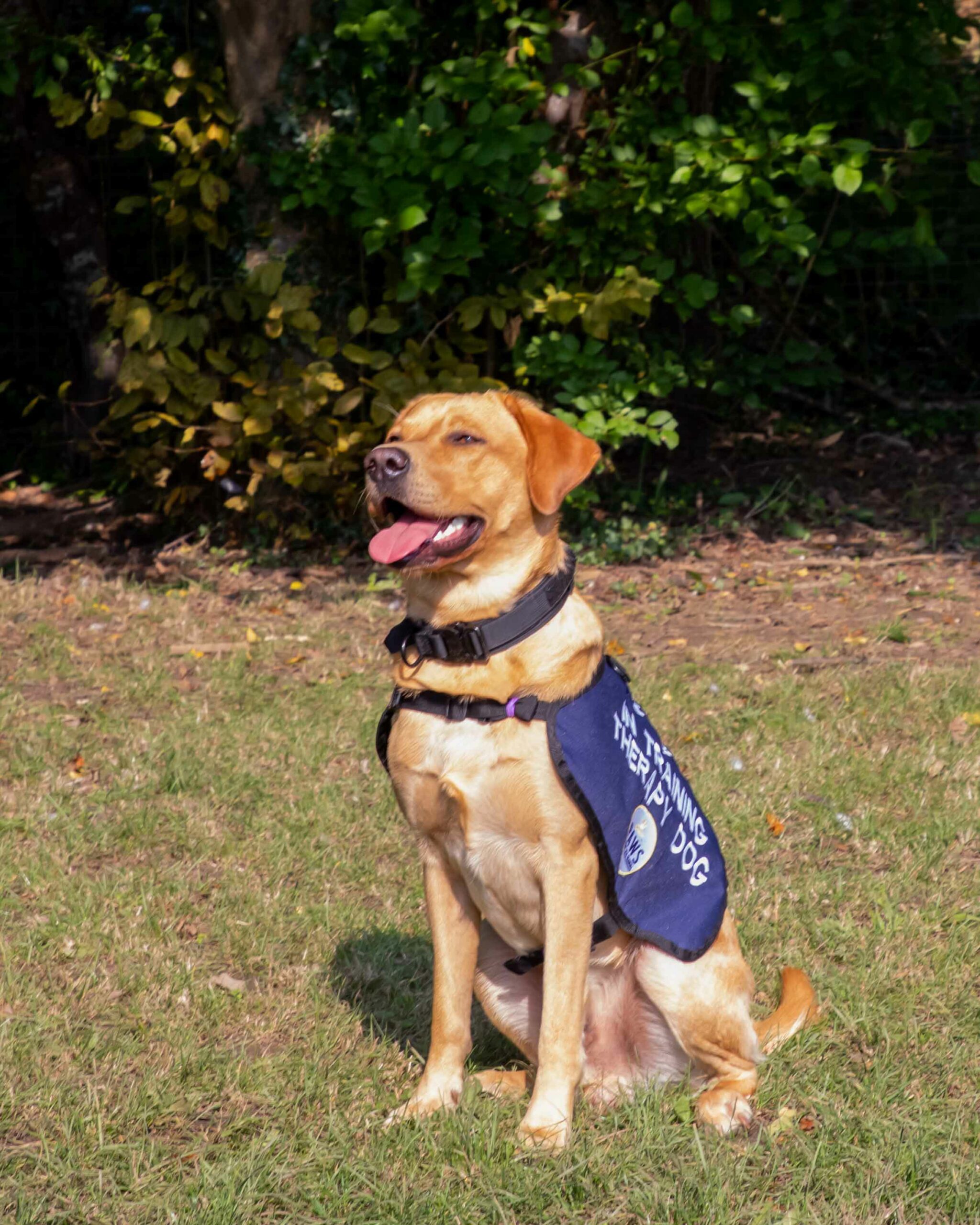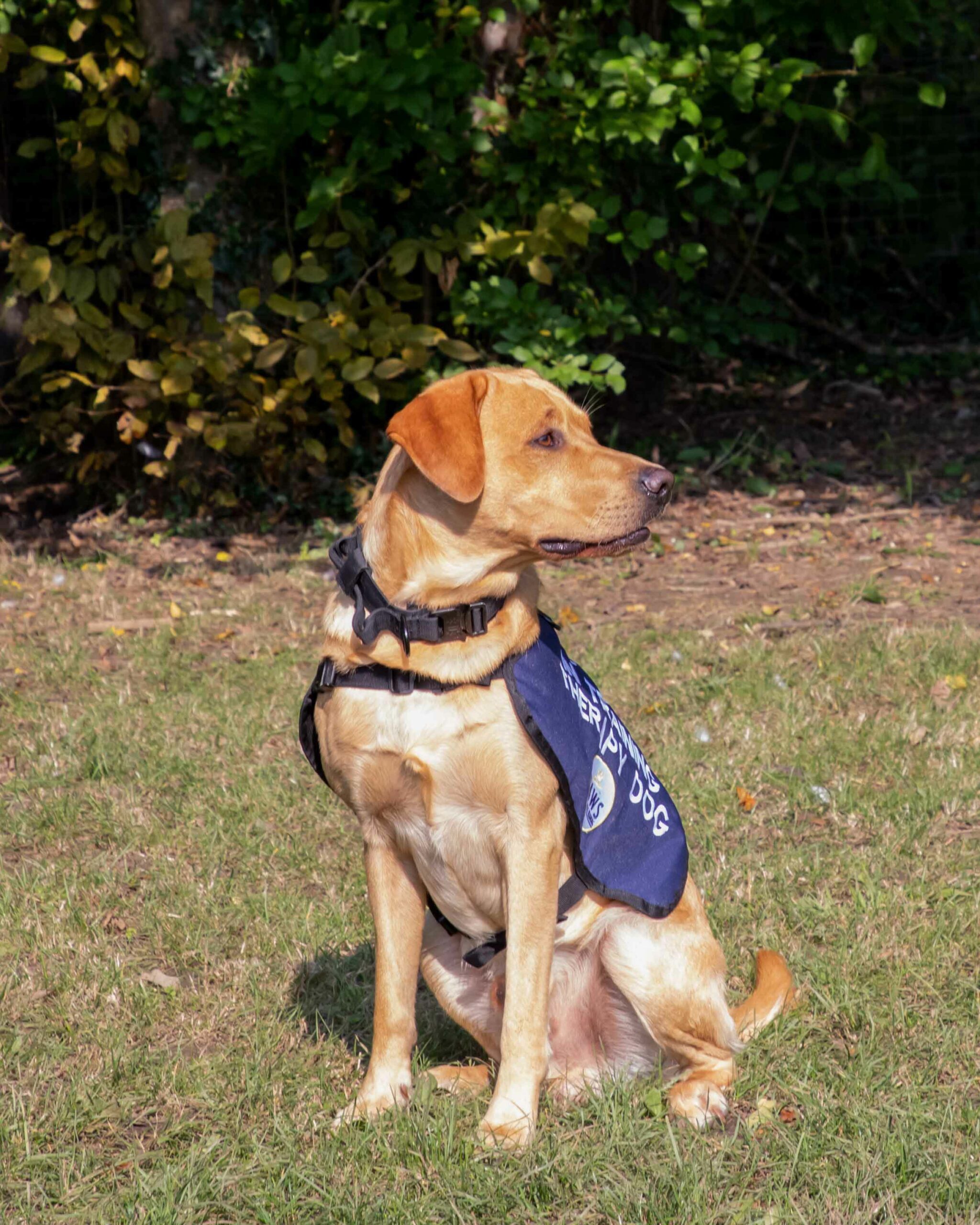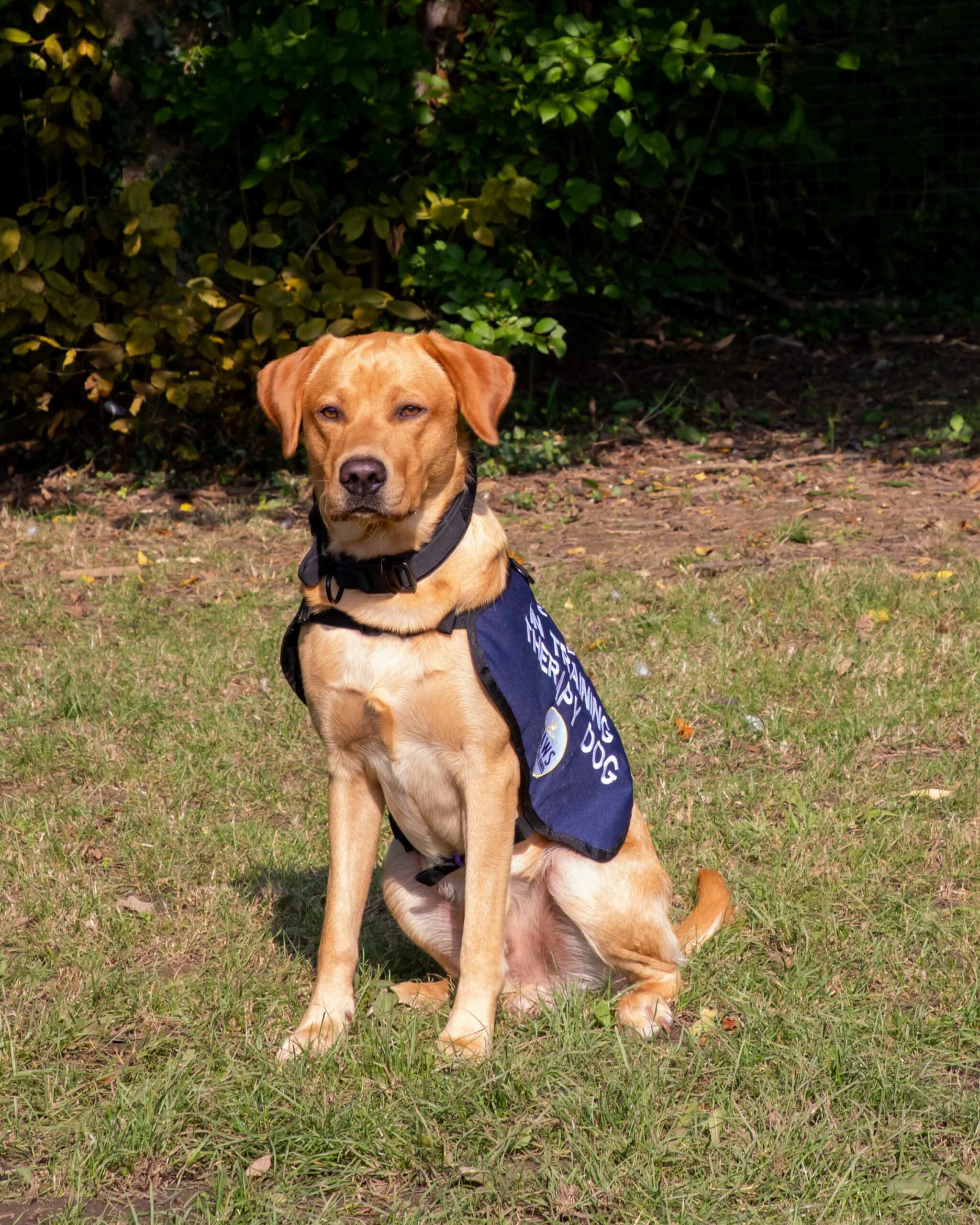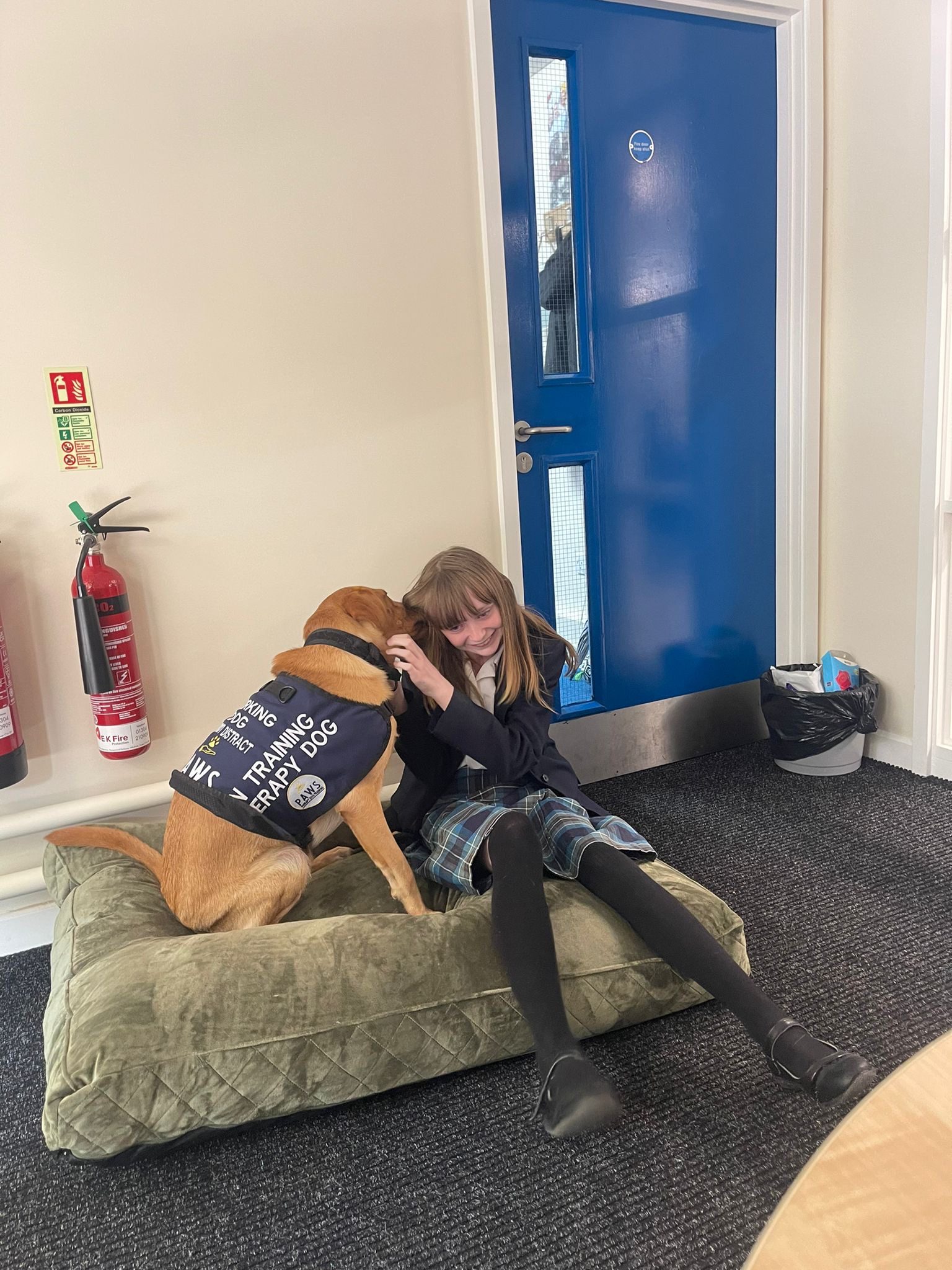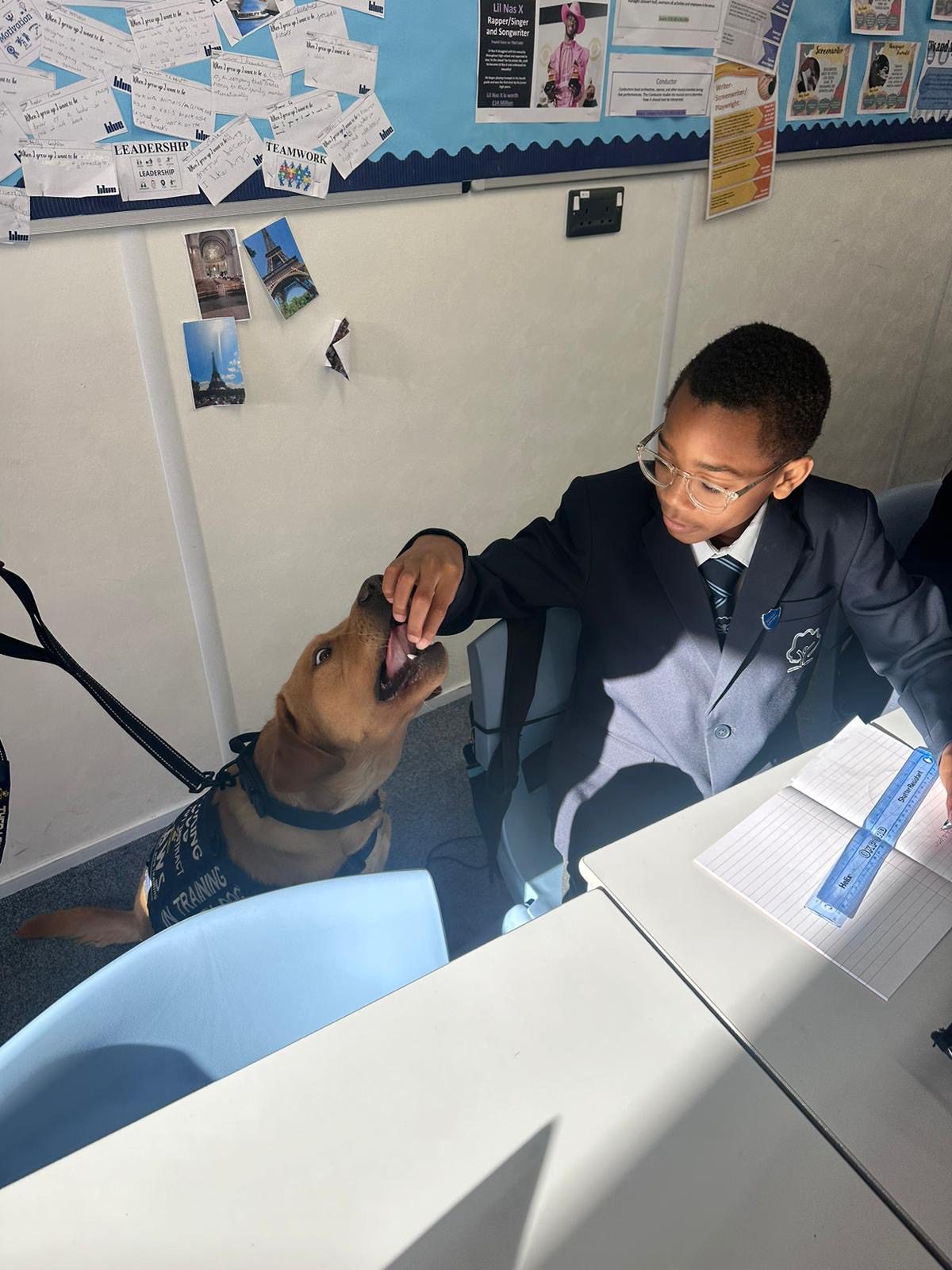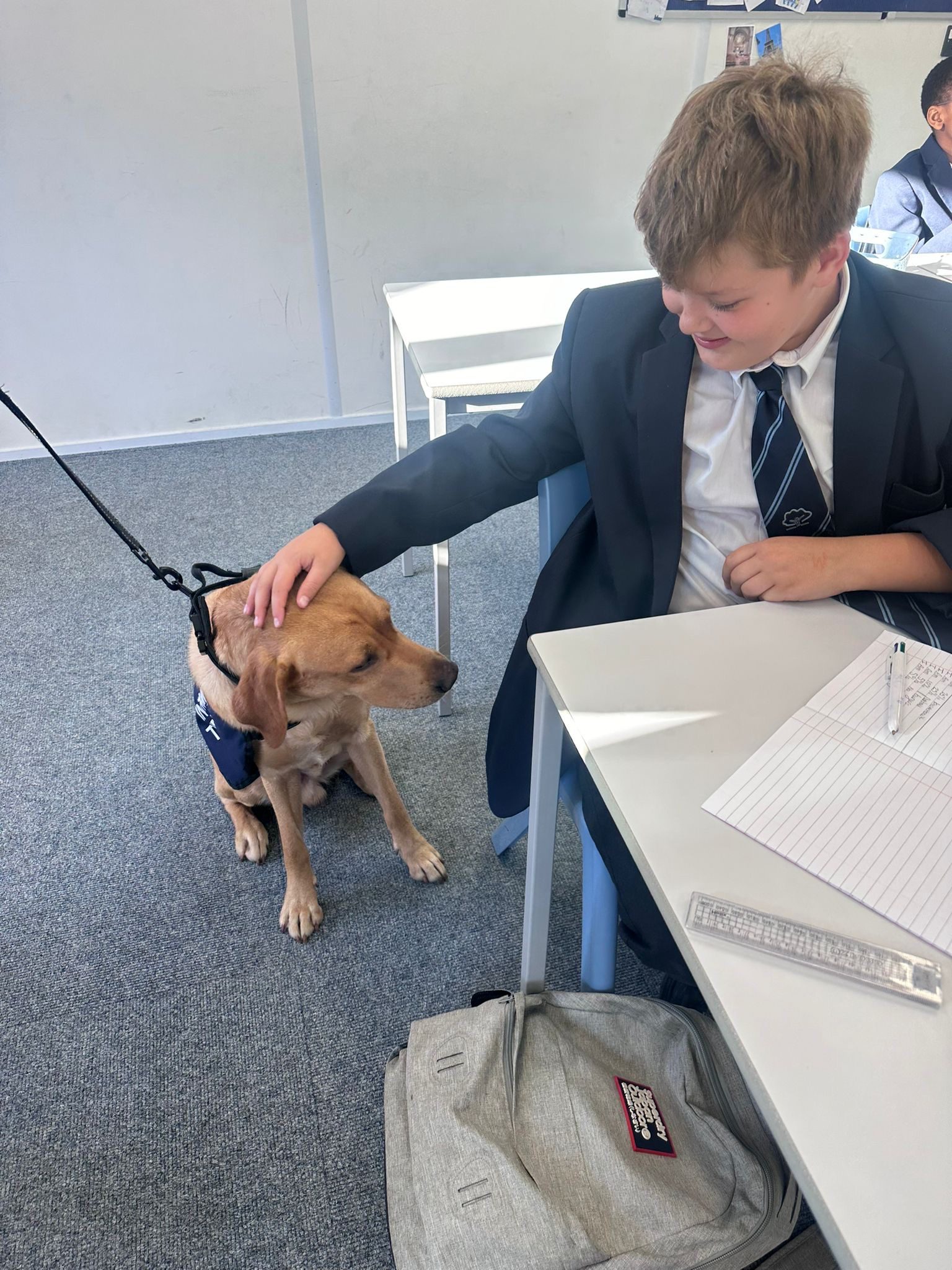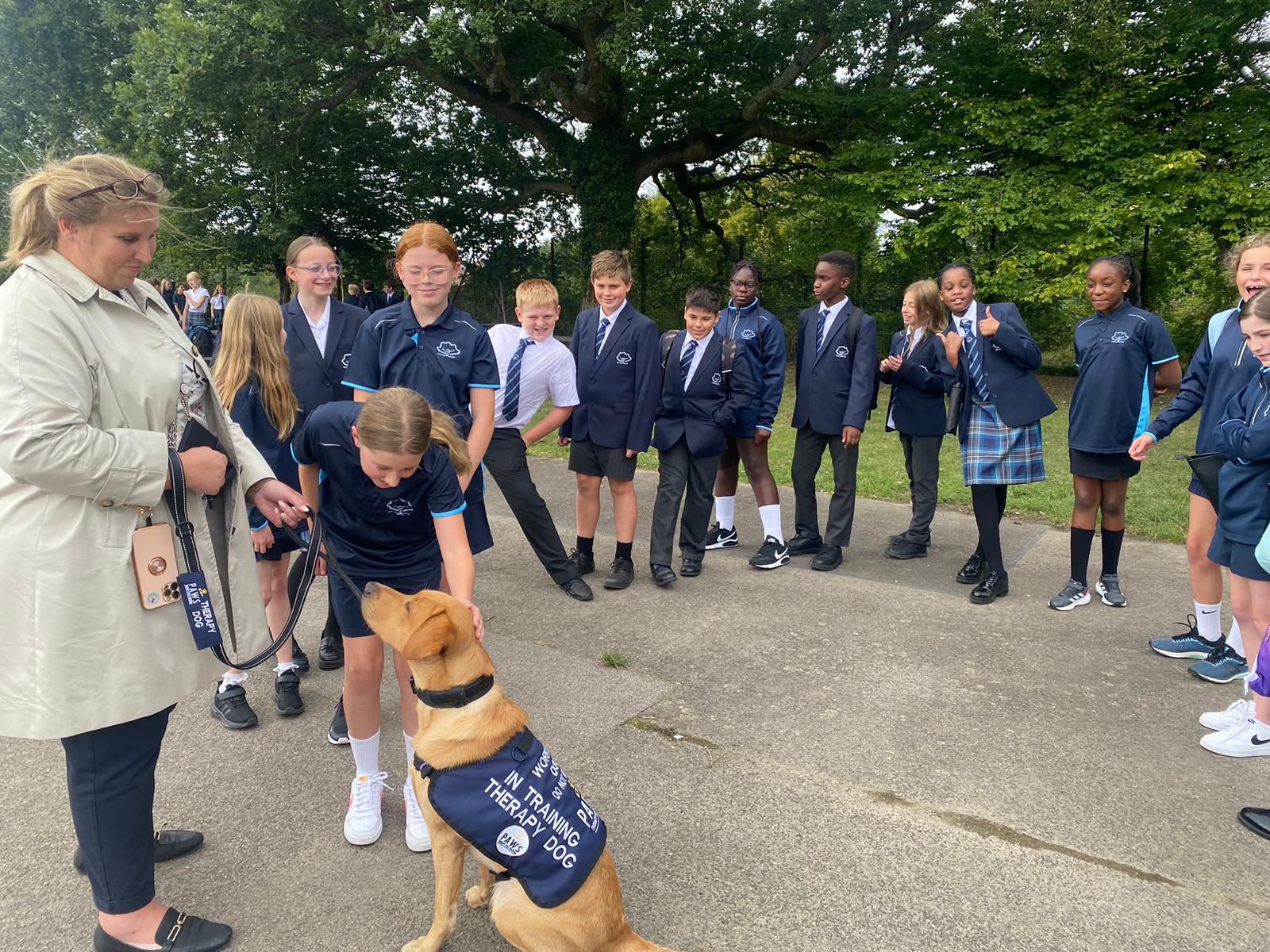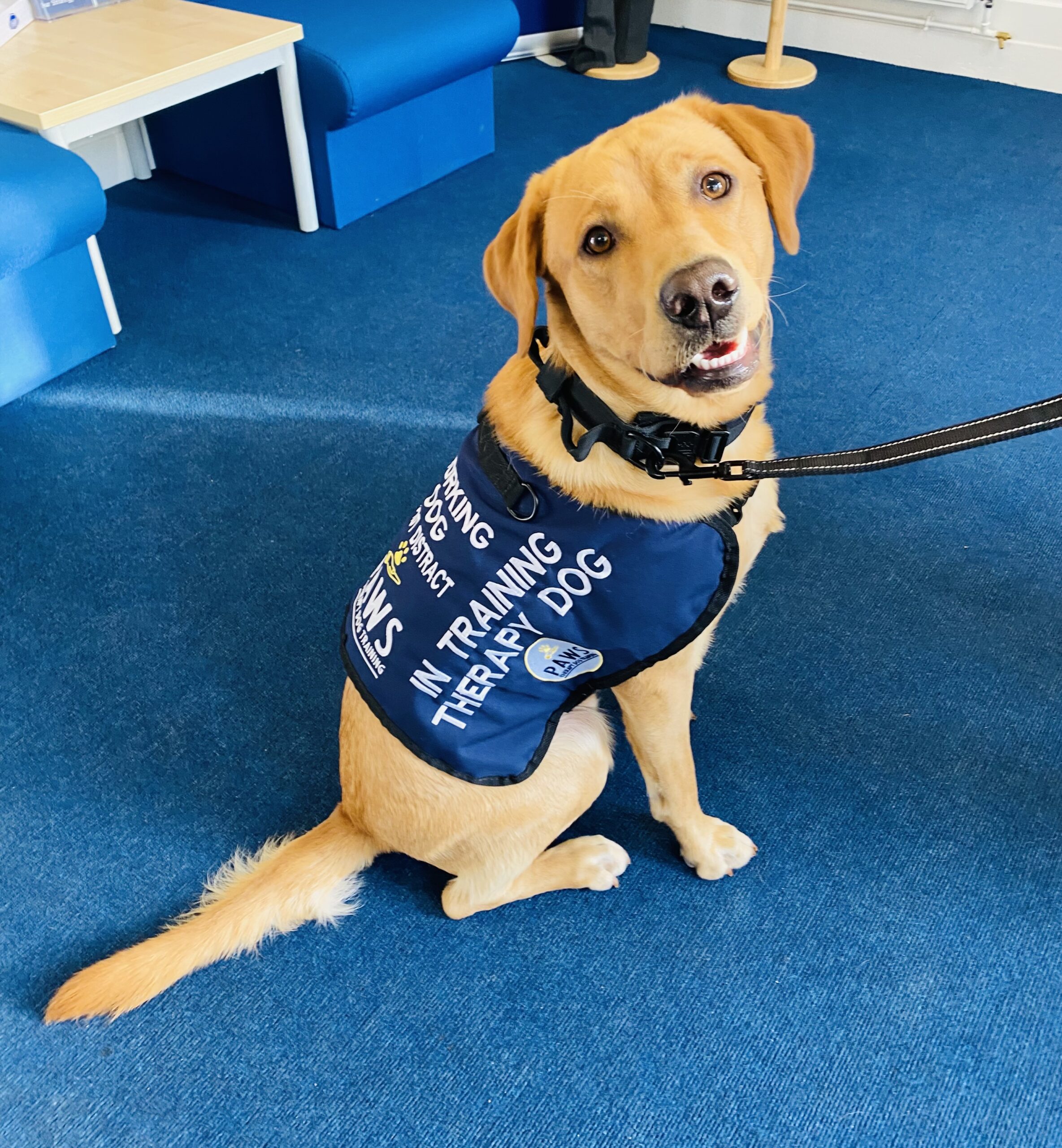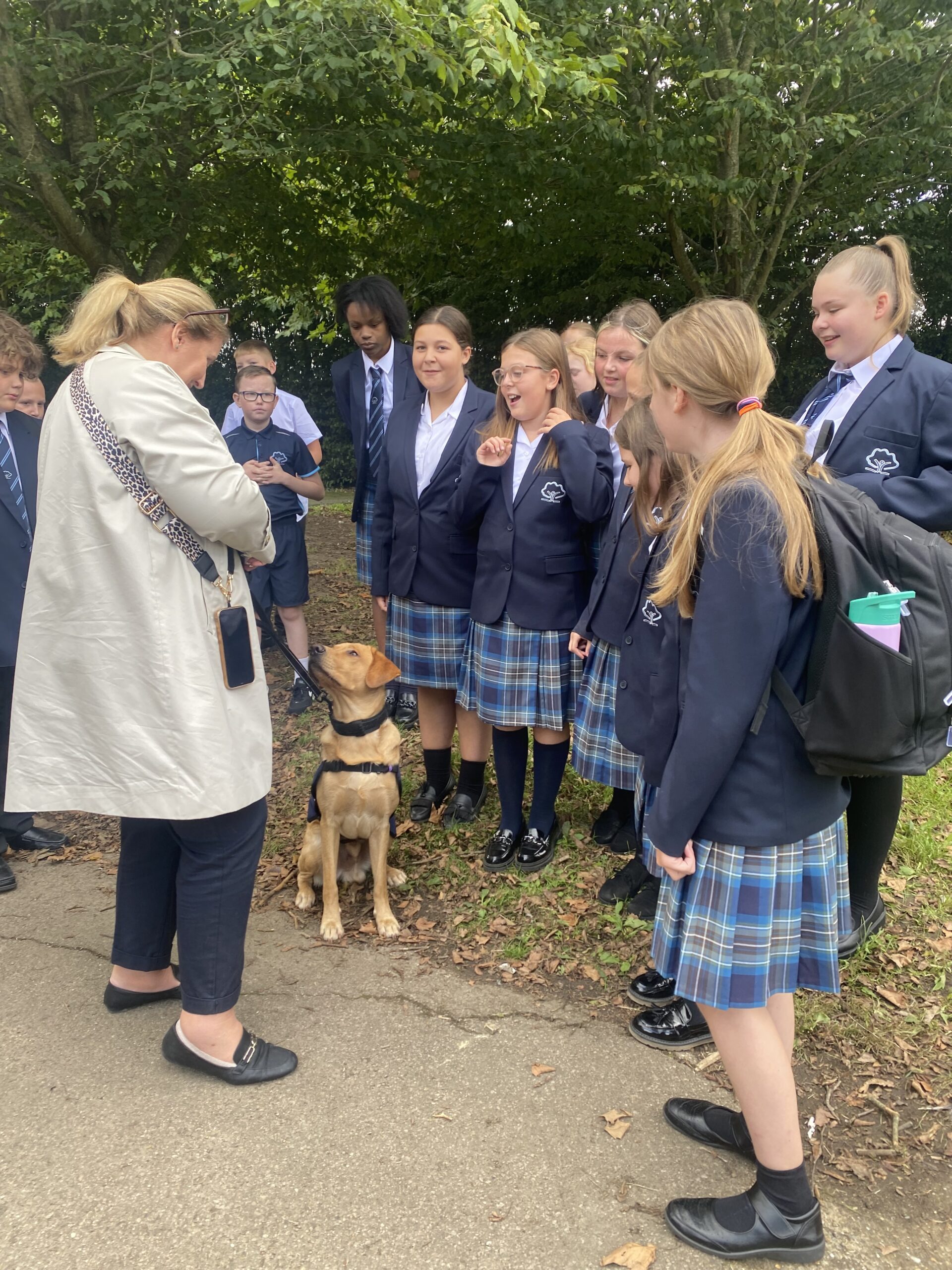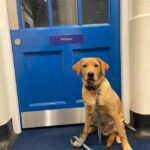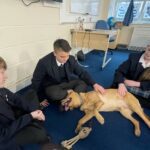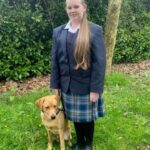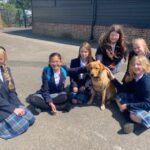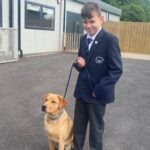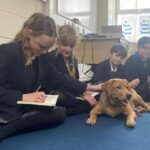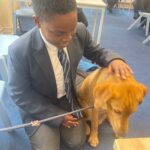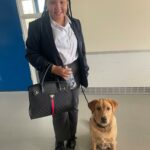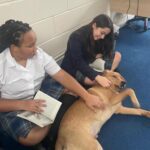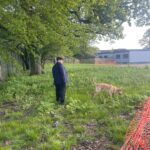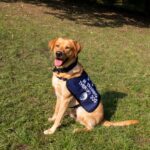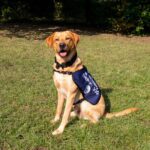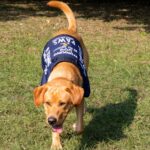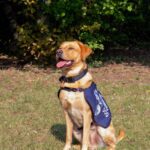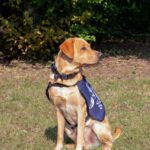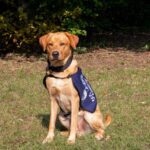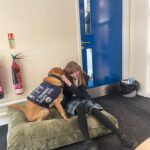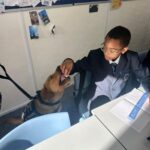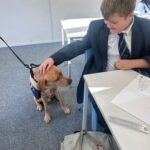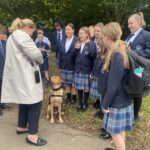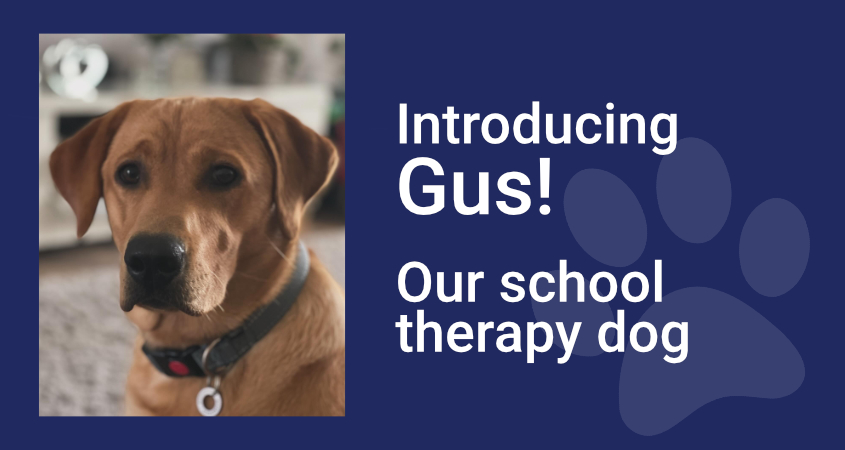
School Therapy Dog
We are very excited to introduce you to a special member of our team, who we will be seeing in school weekly.
Introducing Gus!
Gus was born in Devon on the 12th August 2023 and he is an 8.5 month old Fox Red Labrador retriever who lives with Mrs Schwartz he is set to become an integral part of our school community.
We have been fundraising for Gus to begin his training with ‘Paws for Therapy’. We are really pleased that Gus will become our new school Therapy dog and visit our school to offer therapeutic sessions.
What are the benefits of having a school dog?
Therapy dogs have been working in UK schools for the past five years but have been commonplace in schools in the US and Australia for many years. Research studies have shown the benefits of therapy dogs in schools which include:
- Cognitive – companionship with a dog stimulates memory, problem-solving and game-playing ∙ Social – a dog provides a positive mutual topic for discussion, encourages responsibility, wellbeing and focused interaction with others
- Emotional – a school dog improves self-esteem, acceptance from others and lifts moods, often provoking laughter and fun. Dogs can also teach compassion and respect for other living things as well as relieving anxiety
- Physical – interaction with a furry friend reduces blood pressure, provides tactile stimulation, assists with pain management, gives motivation to move, walk and stimulates the senses
- Environmental – a dog in a school increases the sense of a family environment, with all of the above benefits continuing long after the school day is over.
As you may be aware, there are already many ‘Paws for Therapy’ dogs working in schools. Reading to dogs has been proven to help children develop literacy skills and build confidence, through both the calming effect the dog’s presence has on children as well as the dog listening to children read without being judgemental or critical. This comforting environment helps to nurture children’s enthusiasm for reading and provides them with the confidence to read aloud.
Will Gus be properly cared for?
Gus will be extremely well looked after. He lives with Mrs Schwartz and her family. Mrs Schwartz will introduce him to our school environment and she will then work with some of our children but they will always be accompanied by Mrs Schwartz or an approved staff member. He will be kept clean and well-groomed at home and children will wash their hands and use antibacterial gel after contact. All children coming into contact with Gus will have access to a lint clothing roller to minimise hair transfer onto clothing. Should the dog defecate on school premises it will be cleaned up by Mrs Schwartz using animal waste bags and a disinfectant used to clean the area if required. Waste will then be carefully and suitably disposed of. How do we know Gus is ready to work in school? Gus has undergone a programme of training with Mrs Schwartz to socialise and teach manners and he is extremely well-behaved(most of the time). Gus will begin his ‘Paws for therapy’ training soon and eventually he will be assessed by a ‘Paws for Therapy’ Assessor. Whilst Gus is in school, he will have access to a dog mat in Mrs Schwartz’s office and this is where he will spend most of his time initially until he becomes used to our staff and our premises. He will also be taken home at a point during the day where he can ‘chill out’! Gus will visit the vet regularly for all his injections as well as regular check-ups. If Gus is unwell for any reason, he will stay at home.
My child is scared of dogs.
Some children may have had upsetting experiences and have a fear of dogs (or another animal). Gus will only be in contact with children who are happy to be around him. However, Gus’ training will train him to be calm and gentle around children; he has a very loving and gentle nature. Experience and research have shown that, with proper guidance and handling, children can learn to overcome their fear of animals and grow in respect and appreciation for them. Gus will be on a lead at all times when moving around the school property and will always be accompanied by Mrs Schwartz or other approved staff member. Gus will also be fully insured to carry out his role in our schools. We have completed a comprehensive risk assessment, having considered the processes and risks in having a dog in school.
What do I need to do now?
We are requesting parents let us know if they do not wish for their child to interact and work with Gus and we request that you complete the slip below or email school with this information. Please also detail if your child is allergic to dogs.
We hope you will join us in welcoming Gus to the Chilmington Green community and embrace all that he has to offer the school.
Frequently Asked Questions
Who is the legal owner of the dog (GUS) and who pays for its costs?
The legal owner of GUS will be Mrs Schwartz. She will bear the costs associated with owning and feeding GUS at home; the school budget/fundraising will support training costs. There will be a school dog contract in place once GUS is officially working as a therapy dog which identifies and sets out all therapy dog related costs.
The school’s public liability insurance covers Chilmington Green school therapy dog providing stringent measures are in place for him including a robust risk assessment, the parental choice of accessing the dog for their child/children, a responsible owner trained
alongside the dog and appropriate pet insurance.
Where is the dog from?
The dog was born in Devon from a litter of 11 (7girls 4 boys) from a KC registered dog owned by Mrs Schwartz’ son. GUS is also a KC registered dog. Mrs Schwartz, the School, and PAWs for therapy discussed the appropriateness of GUS for this role. He was 9 weeks old when he came to live with Mrs Schwartz and her family (October 2023) GUS is a Fox Red Labrador retriever who has a good temperament, intelligence, and a short coat to try and eliminate any fur allergies.
Has a risk assessment been undertaken?
Yes, we have carefully considered having a dog in school and sought advice from many sources, including other schools that successfully have a school dog.
Who is responsible for training?
Mrs Schwartz will be the legal owner of GUS and as a result she will be responsible for his training, school will be fund-raising for the dog’s training costs towards him becoming Chilmington Green schools therapy dog. Appropriate professional training will be obtained through PAWs for therapy and the dog will work towards being trained as a therapy dog with a 1:1 trainer with advice/support from Paws for Therapy, The Dogs Trust, and The Kennel Club.
GUS will have an assessment at 12 months old and annually thereafter completed by PAWs for therapy to maintain the agreement that he remains suitably trained to continue to be the schools therapy dog.
How will the dog be toileted to ensure hygiene for all?
In the interest of health and hygiene our school dog will be toileted when taken out for walks around the grounds. Any defecate will be cleared up straight away and disposed of appropriately.
Will the dog be a distraction to pupils’ learning?
The dog will be kept in Mrs Schwartz’ office, secured, when needed a sign will always be on display if GUS is in any room to allow the dog to have more space to roam when he is not working, he will also has access to Assistant principal Miss Woods office, the SEN office, all who will support Mrs Schwartz in caring for the school dog. GUS will also attend some meetings with staff to support further socialisation, and support staff well-being, following consultation with staff beforehand.
What if my child fears dogs? Will they be forced to be in the same room as the dog?
The dog will be kept in Mrs Schwartz’s Office and Mrs Schwartz will ensure the school dog GUS only meets with children who are happy to have contact with him and where there has been no refusal of permission by parents, this will be under strict supervision. A pupil will not be forced to be in contact with the dog at any time against their wishes. We hope to work closely with parents of children who are fearful of dogs to alleviate their fear and to teach them how to manage this using evidence-based interventions such as graded exposure.
How will the dog’s welfare be considered?
The dog’s welfare will be carefully monitored. GUS will be walked regularly throughout the day and given free time outside of sessions to rest and play. The dog will be carefully trained over a period and will have appropriate access to food, treats, water and toys.
How will this be managed where children have allergies?
Children will not need to touch the dog or be in the same room as the dog at any point which will relieve the possibility of allergic reactions. We already manage several allergies at school and this will be no different for children and adults that are allergic to dogs. Individual needs will always be met and we are happy to work with parents to put additional control measures in place for individual allergies. Families have been consulted via newsletter (11) regarding allergies. GUS will be regularly groomed to reduce any possibility of allergens. A letter will go out to all pupils at the start of each year to ask about allergies or where parents refuse to allow their child to have access to the dog.
Will the dog visit school on set days/hours?
Gus will visit school on a scheduled timetable with Mrs Schwartz. If for any reason Mrs Schwartz is absent from school duties Gus will also not attend.
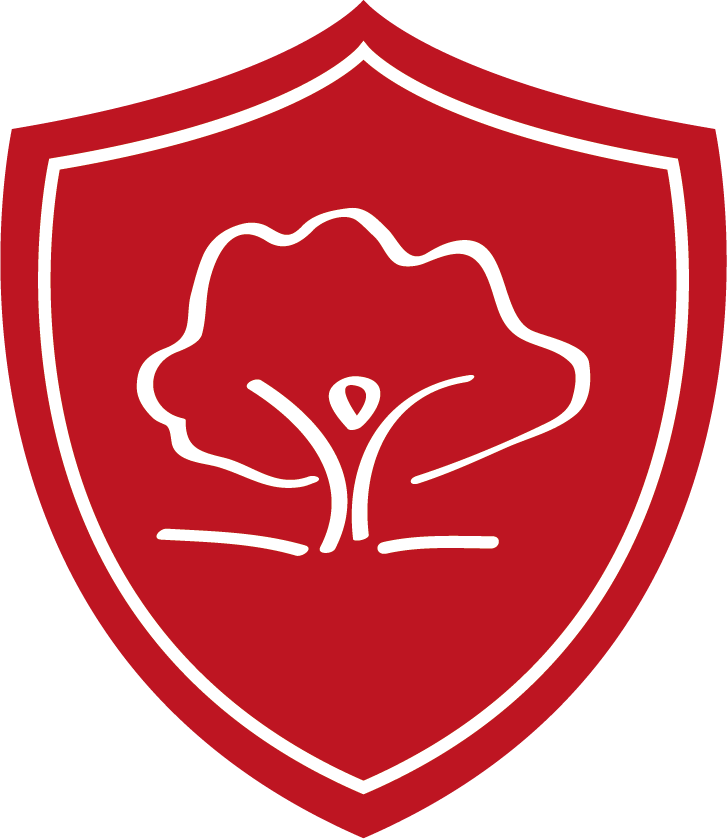 5959
5959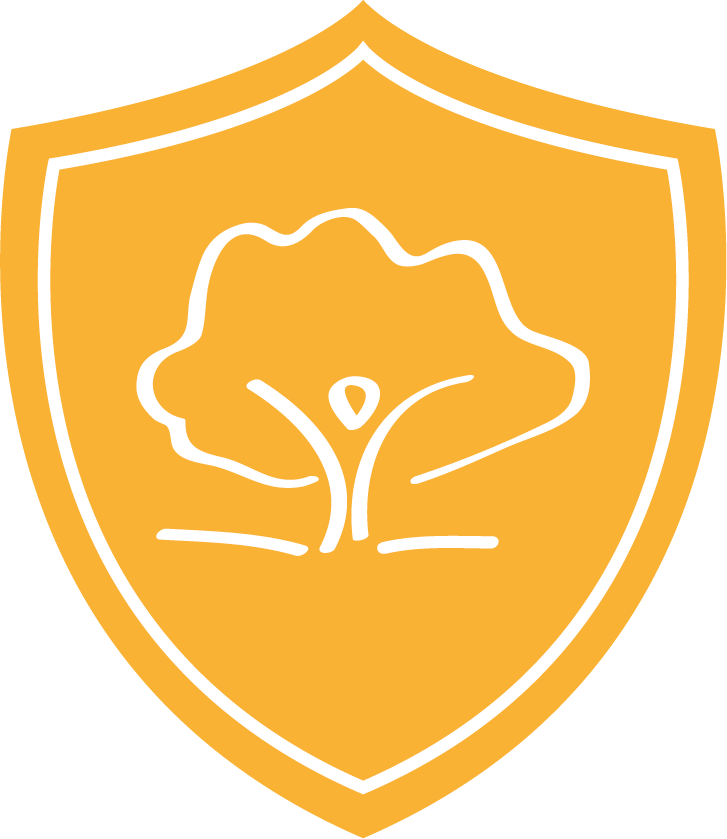 6737
6737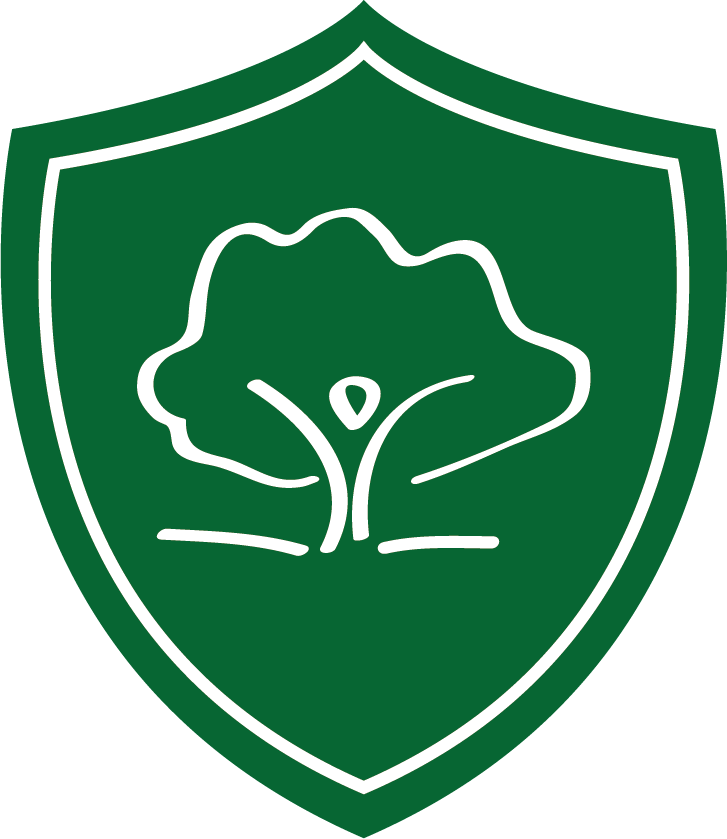 7145
7145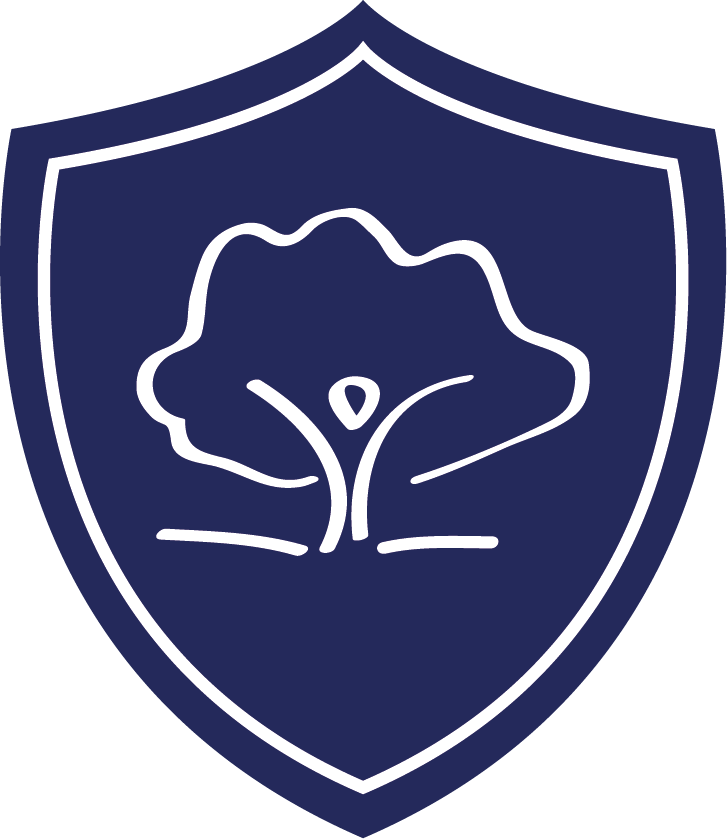 6393
6393 6178
6178

